Tyabb’s Learning and Pedagogy Leader, Mr Andrew Fergusson is currently undertaking his Master’s in Theology. He reminds us, below, of the importance of resilience and routine in students achieving their personal best.
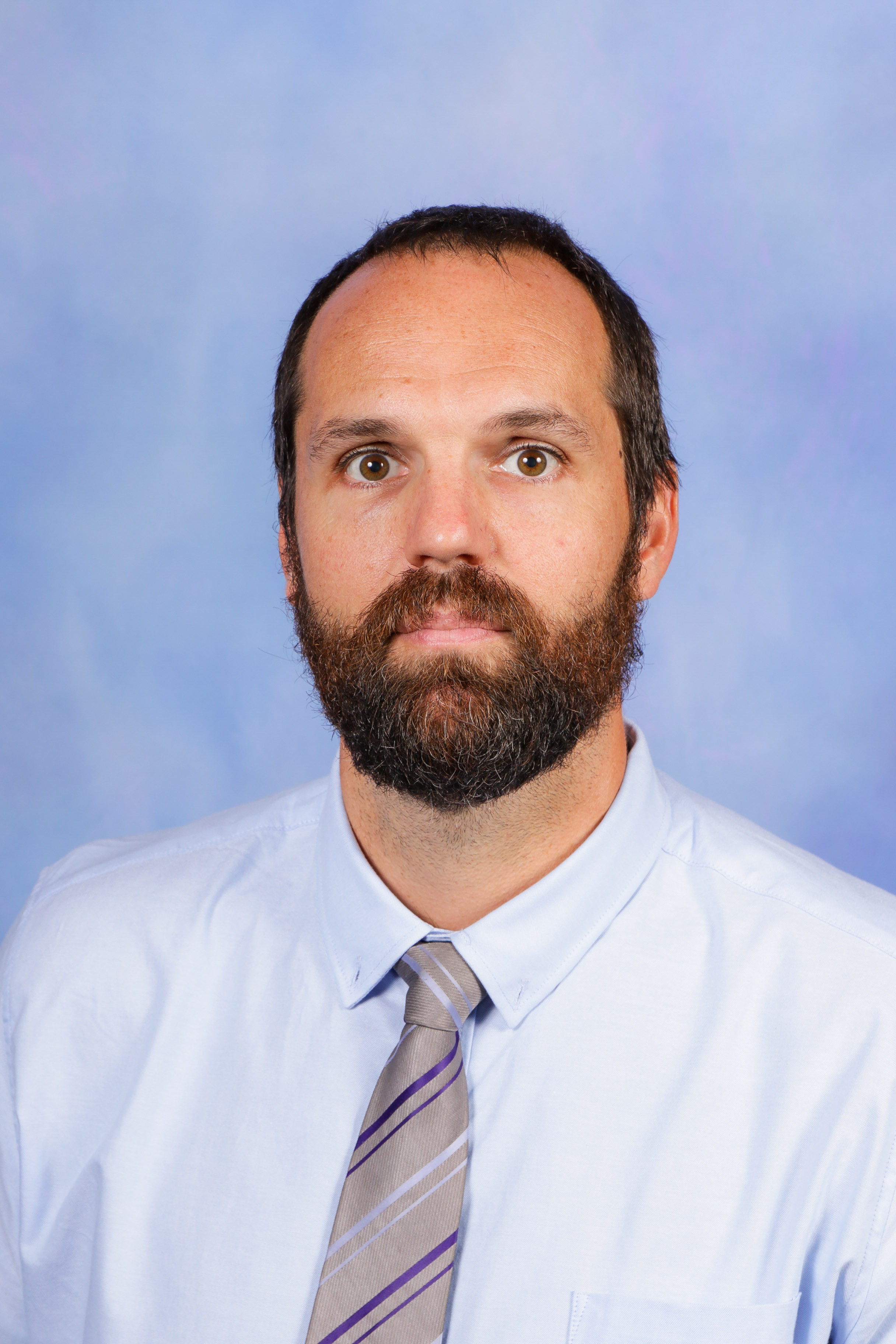
Andrew Ferguson
TYABB CAMPUS LEARNING AND PEDAGOGY LEADER
From approximately 515 B.C.E. until its eventual destruction by the Romans in 70 C.E., the second temple of Jerusalem was a focal point of Jewish religious and national life. According to the Old Testament scriptures, the construction of the second temple replaced the first temple (built by King Solomon and later destroyed by the Babylonians) in the hope that those living in exile would return to Judea and the Jewish nation might be reborn. One might expect that the resurrection of the temple would bring with it a sense of delight and jubilation. While this is largely true, the response to the re-build was far from ubiquitous.
As we read in the Book of Ezra “The people responded with a great shout [] because the foundation of the house of the Lord was laid. But many [] who had seen the first house on its foundations, wept with a loud voice” (Ezr 3:11). For many, the rebuilding of the temple marked the beginning of cultural and spiritual restoration of a nation. They once again had a focal point for re-establishing the norms they had been deprived of whilst in exile and could again, after many decades, resume life as they had once lived it. So why the weeping? Whilst theologians still debate the reason, it is commonly accepted that for many, especially those who were old enough to have seen the first temple, there was a sense that the re-built temple was still not as grand as the first. That what was lost in its destruction, had yet to be fully restored in its resurrection. There was a sense that even though there was once again a purpose-built structure, the years in exile had changed the very identity of the Jewish people and there was uncertainty whether the social, cultural and spiritual way of life would ever be fully restored.
Whilst it is not the purpose of this article to offer an in-depth exegesis of this passage, it does serve to highlight that rebuilding is difficult work. When place-based communities are dramatically disrupted, it can take time to re-establish the sense of familiarity, purpose, safety, and social cohesion they once afforded. Rebuilding any place is difficult work, but when what is being rebuilt is made up of more than bricks and mortar the challenge is even greater. There is no question that students, teachers, families, and communities’ lives have been radically disrupted in the two years. The impact of the COVID-19 pandemic on the Australian education system was profound and is still being felt. Though we won't fully understand the pandemic's full impact on education for many years, it is without question that the past two years have had significant implications for student learning. For all involved, adjusting from online to onsite learning, dealing with periods of absence, and adjusting school programs so that they operate in a COVID-safe way, has meant that schools and the people connected to them have faced tremendous challenges.
As we undertake the challenge of rebuilding school life, we are acutely aware that restoring a sense of ‘normal’ will take significant time and effort. At Padua (Tyabb), an important step in this restoration has been to reacquaint students with the structure and routine that school-based, face-to-face learning affords. A routine that works with students and families to ensure that rules and procedures are clear and serve to support students in their learning. Predictability is incredibly important, and our goal is to create pockets of certainty, moments throughout the day where students know what is going to happen and what is expected of them. Getting the basics right, like arriving on time, bringing the correct materials to class, wearing the uniform correctly, and completing classwork to an expected standard is something we are working hard to impress on our students. We believe that an emphasis on these seemingly immaterial, less urgent matters are in fact the building blocks that create a sense of stability for students and allow them to achieve their best.
Much like the second temple of Jerusalem, our school will continue to build, develop, and improve. The goal is to build a place where students can do their best, help others achieve, and utilise their God-given talents. A place where students strive to be valuable members of their communities. We are well on the way and are very proud of how our students have responded to this challenge. They are the builders and the stonemasons. What so many have achieved thus far in 2022 is remarkable.
As you will see from the samples below, our students have produced some outstanding work and given us countless moments of inspiration. The rebuild is well underway.
Year 8 English
This term, the Year 8 English classes studied a multimodal text unit exploring the theme of belonging. We read short narratives from the perspectives of First Nations peoples, and Muslim Australians as well as first and second-generation refugee Australian stories. Our study included multinational animated and live short film texts. Students engaged with the texts and the topic by producing analytical writing and creative projects. Below is a snapshot the creative projects:
Family Gatherings by Shaya Vedamuttu
Our family gatherings can be chaotic. Whether it be my little cousin sticking his hand in the jelly, someone forgetting to put the food out, or tricking our younger cousins into playing hide and seek so we can get away. Although they are chaotic and messy, I know that there will always be a place for me at the kid's table. No matter how old we get, even if you are an adult, you always have to sit at the kid's table. Even my 19-year-old sister still sits there. Our gatherings are really important for us to get together with our cousins. We don’t live close to them so when we gather together it is always really fun. Being near family on special occasions makes me feel like I belong. The best part of the year is when we get presents for each other and put them under the Christmas tree. It feels like I have been considered and thought about when they are handing me the present. For my family, these gatherings are some of the most joyful times of the year. It is really fun to see how much each of us has grown since we were little and how we have stayed close throughout the years. Belonging is very evident with me and my cousins because whenever we are together we always get along like no time has passed. This makes it even more special and makes me feel like I belong. There are just some things that will never change and this is what I think belonging and identity is. It's being with the ones that you love and showing that you can be yourself.
Comic Book by Abbie Brent
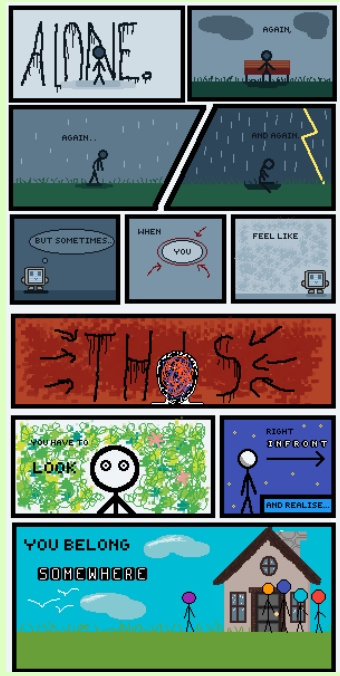
Stills from Angelique Brun’s Stop Motion Movie
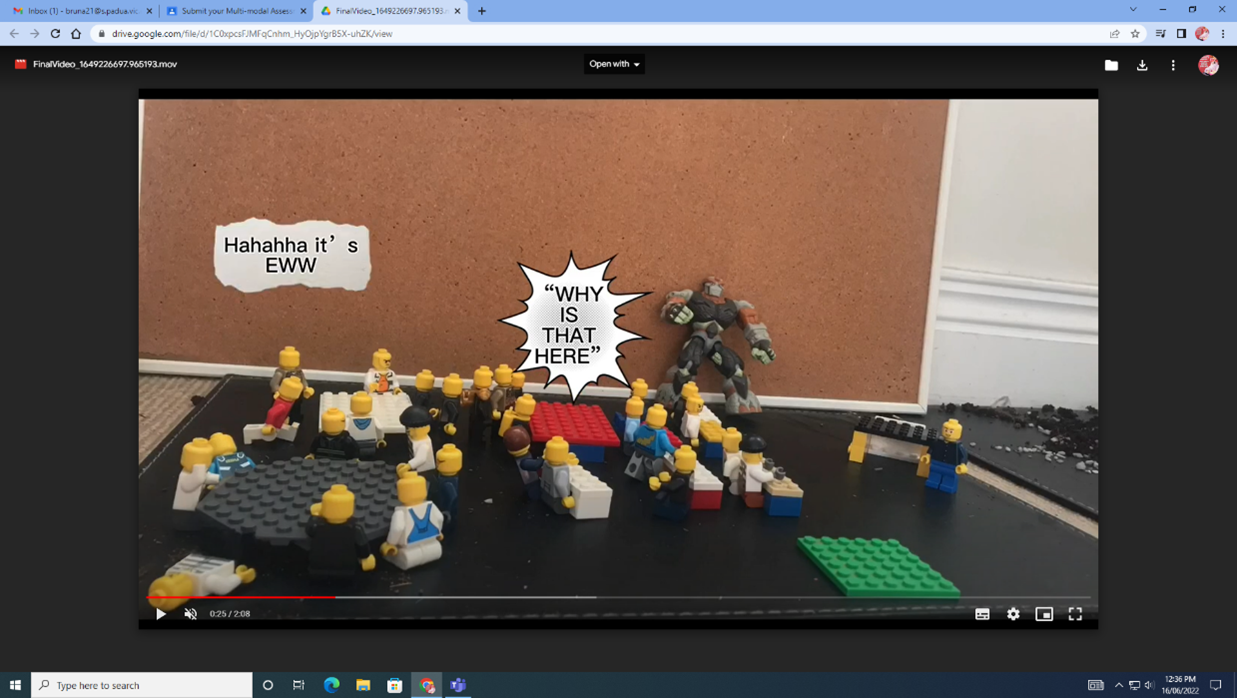


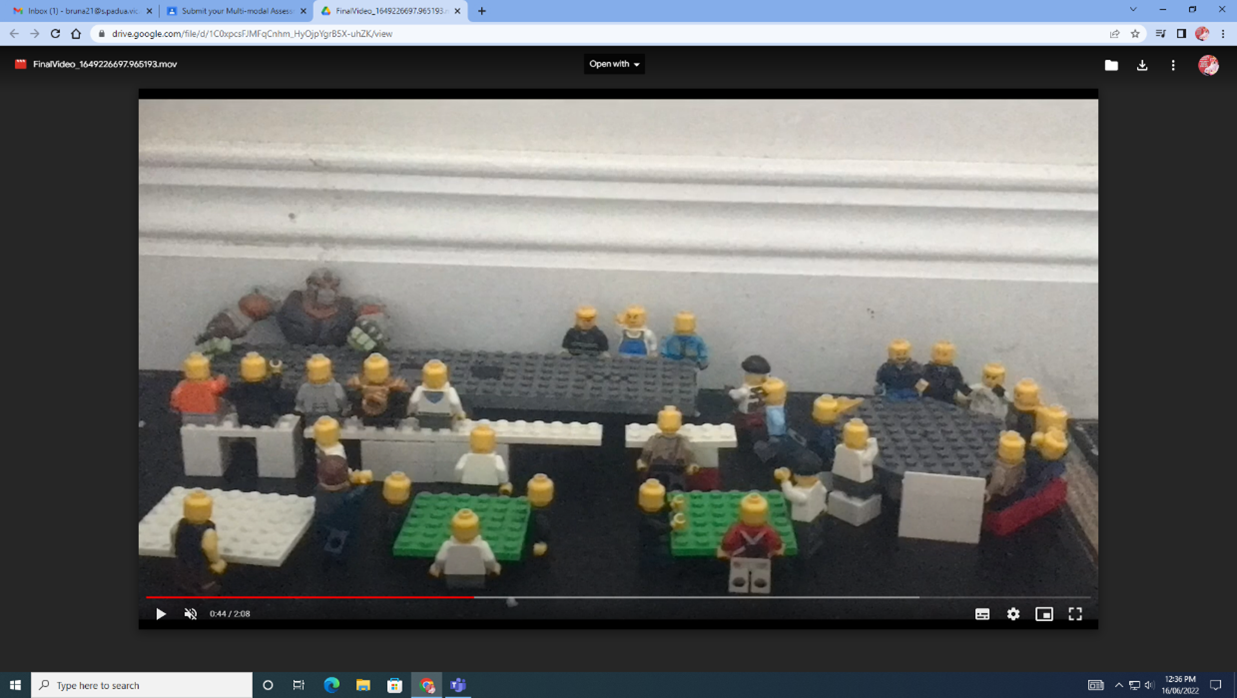
Year 8 Geography
In Year 8 Geography, we are labelling and colouring important things and places on the world map. These include things like continents, deserts, cities, mountain ranges, forests and rivers. I learnt the locations of famous mountain ranges, rivers and names of popular cities. I also learnt about all of the boundaries separating each country, city and continent.
Tilly Richards, Year 8 McCormack
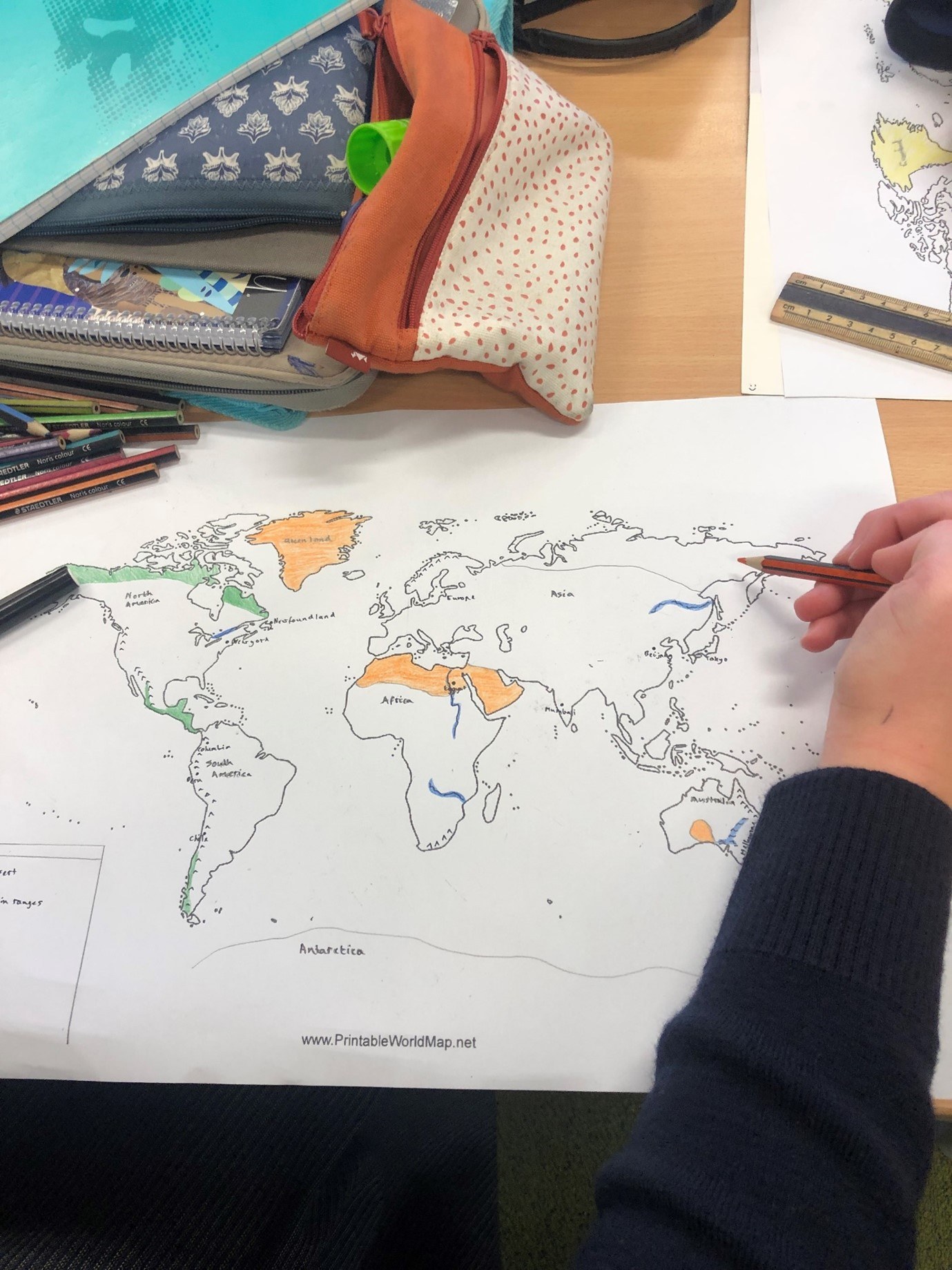
Year 7 Drama
Year 7 Drama students ended the semester presenting their excellent performances for their final assessment which they directed and devised independently in their small groups. It has been so rewarding to see nervous students begin the semester and go on and find their inner thespians, especially after two years of performing solo during remote learning. What a great opportunity to take both courageous and creative action and grow in performance skills. Well done to all for finishing off their semester in drama so boldly.
Mrs Clare Parks

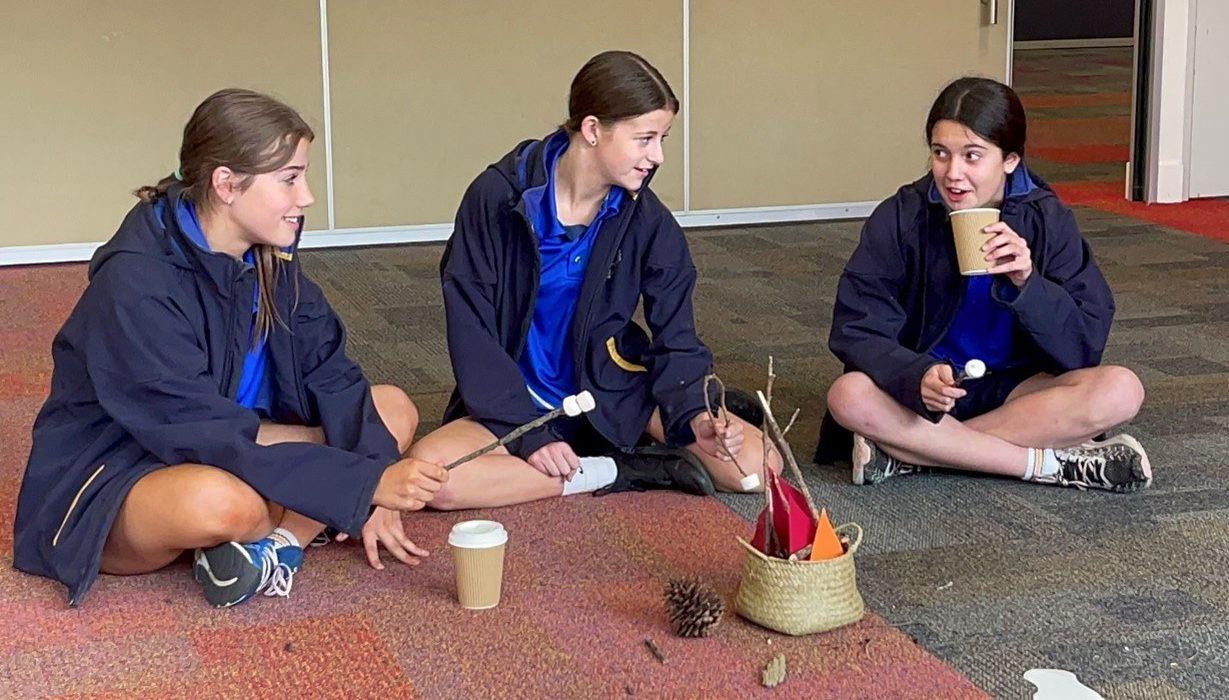
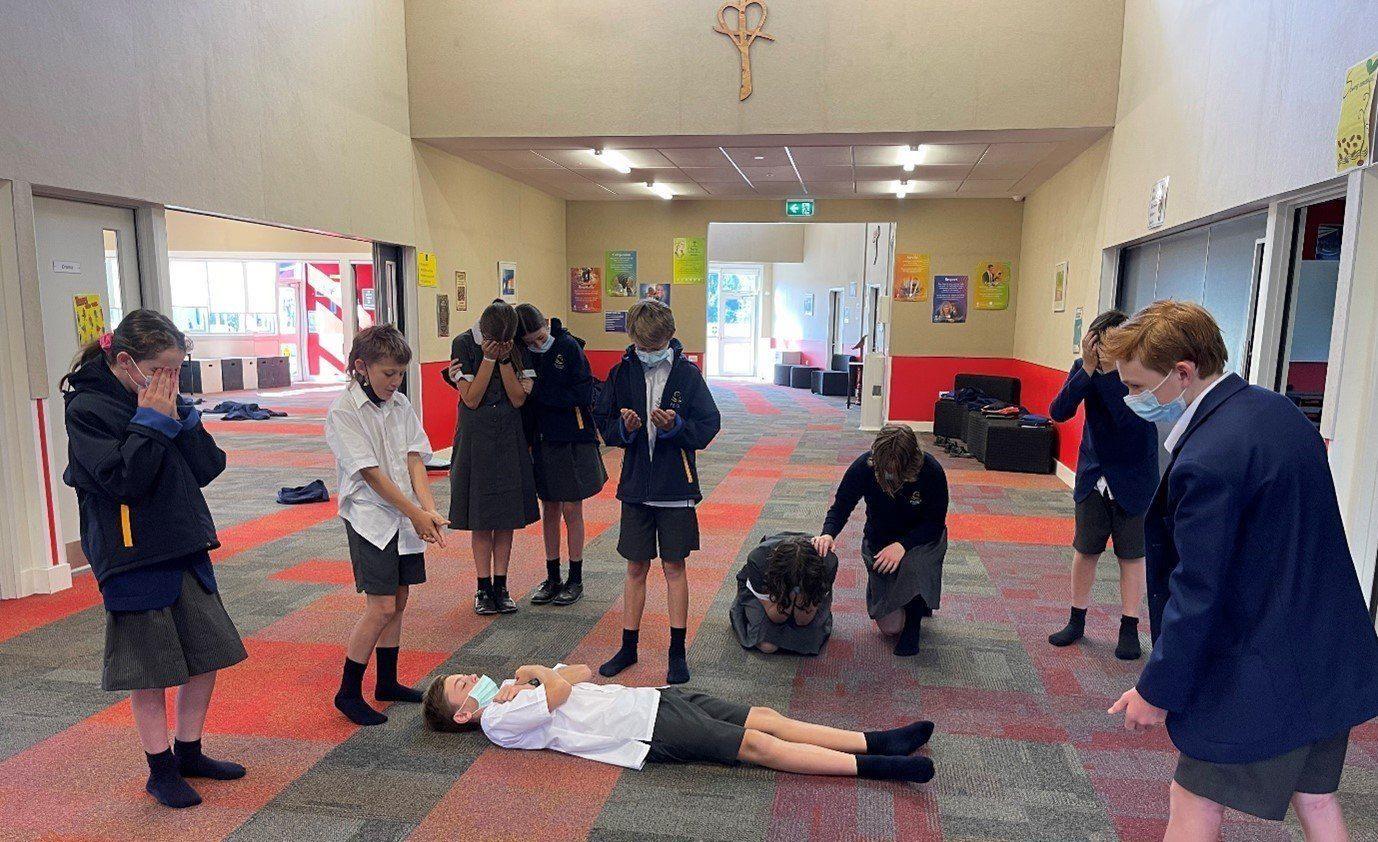
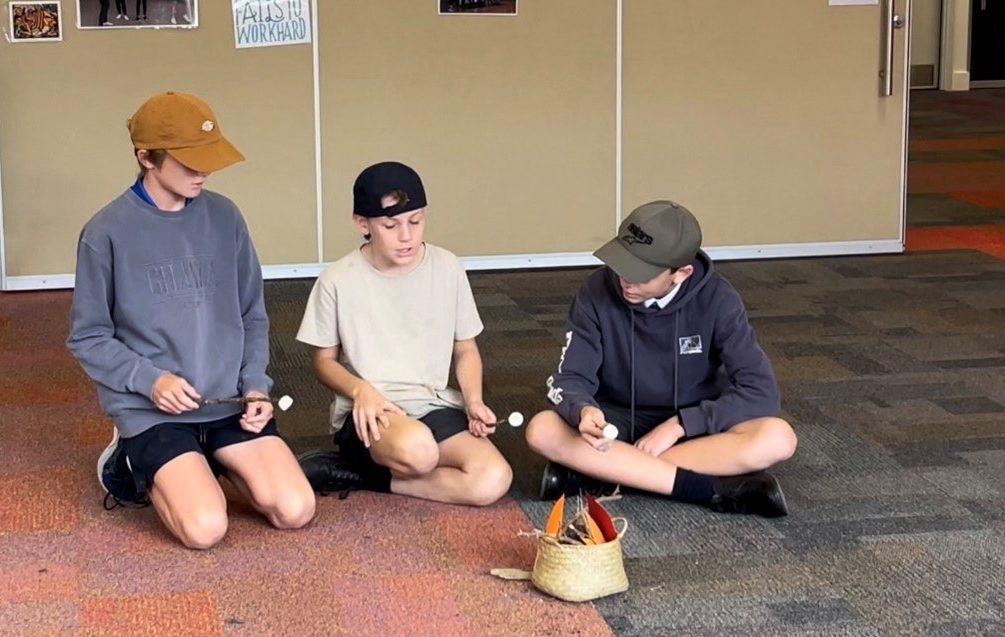
Year 9 Media
Year 9 Media enjoyed a fun warm-up activity to emulate a Pulitzer Prize-winning photograph. The task gets students working with the cameras without feeling intimidated or worrying too much about shot settings. The focus is on shoot planning, costumes, theme and collaborating together. Students also learned to frame their end product with fancy handwritten labelling. The field shoots turned students into directors, actors and production managers, the transformation is always delightful.
Ms Lucinda Gamble
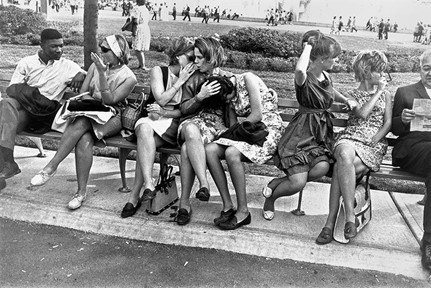 |  | |
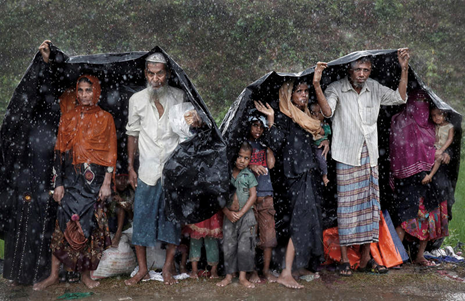 | 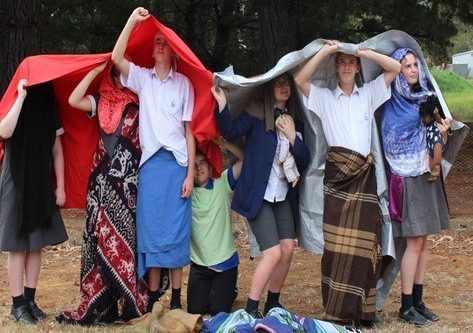 |
Year 7 English
The Year 7s were asked to write an open letter to an MP in response to a local issue that is important to them.
Dear Mr. Albanese
The Flinders pier is very fun and the local pier where we can go scuba diving, fishing and, just jumping off with friends.
Firstly, we must have a pier in Flinders because it is a huge tourist destination that also supports all the shops and restaurants. It would be appalling that you’d just tare it down with no reasoning whatsoever! This will not happen on my watch.
Secondly, there is one of the three species of Weedy Sea Dragons that is protected by the vast structure of wood and seaweed. Just the thought of it makes me disturbed and disgusted.
Thirdly this pier you are thinking of demolishing is one of the last and longest wooden piers on the Mornington Peninsula. It would be a big waste of time so why takedown a pier that was made in 1826!
You are probably thinking that it would be a huge saver of money, but you might just be taking out some of the only weedy sea dragons left in the world!
This pi.er will be saved! It is your priority to make our country a better place to do that by saving our pier.
From Daniel Cole-Sinclair
To: The Mornington Peninsula, MP
Zoe McKenzie
RG Menzies House
Cnr Blackall and Macquarie Streets
Barton ACT 2600
Dear Zoe McKenzie,
I am Dash from Padua College, here to tell you about how the koala populations have been declining rapidly in the past 3 years and still are. We need YOU to put a lot more money towards the care of koalas.
Firstly, due to the recent fires (in 2019-2020) more than 60,000. Yes 60,000! 60,000 koalas have been impacted by last summer's devastating fires. Since then, koalas have gone from 45,745 - 82,170 to between 32,065 - 57,920 in 2021. Koalas' lives matter, just like yours!
Furthermore, cars are another threatening problem for koalas. Did you know that over 4,00 koalas are killed by cars each year? You can prevent this tragedy by having better noticeable signs so that people are more aware of our native animals. In fact, more money must be put towards the surviving & injured koalas to save them!
The most compelling reason is that koalas are native to Australia. In meaning, if they go extinct here, they are gone forever. Do you want that? The more money you put towards the existence of koalas means they have more chances of surviving in other future natural disasters. Suggestions I'd propose for the uses of the money would be, breeding them to get populations up or even putting lots of land under protection of the government.
In summary, our koalas are endangered and are decreasing in numbers rapidly. In addition, not enough money is going towards them, and we are paying the price. I hope after this, you’ll take action and save our beloved koalas.
Yours sincerely,
Dash
Year 9 Science
In term 2 some of the Year 9 Science classes completed an assessment task in our unit on electricity in which we had to wire 3 lights into a model room using what we had learnt about parallel circuits. We had to design our own room and choose where our 3 (or more) lights would go. We could choose any room from a bedroom, a kitchen, or even a study and had a range of options as far as our imaginations as to what we would do with our lights. Me and my partner chose to create a bedroom and wire 4 lights into the room. I really enjoyed the freedom and creativity we had with this assessment and I think it was a great way to show what we learned in this topic.
Fyonn Munro
While making my wired house I enjoyed being able to choose your own theme and room, wiring the house was easy once you got the hang of how to wire.
Milly Ledlin
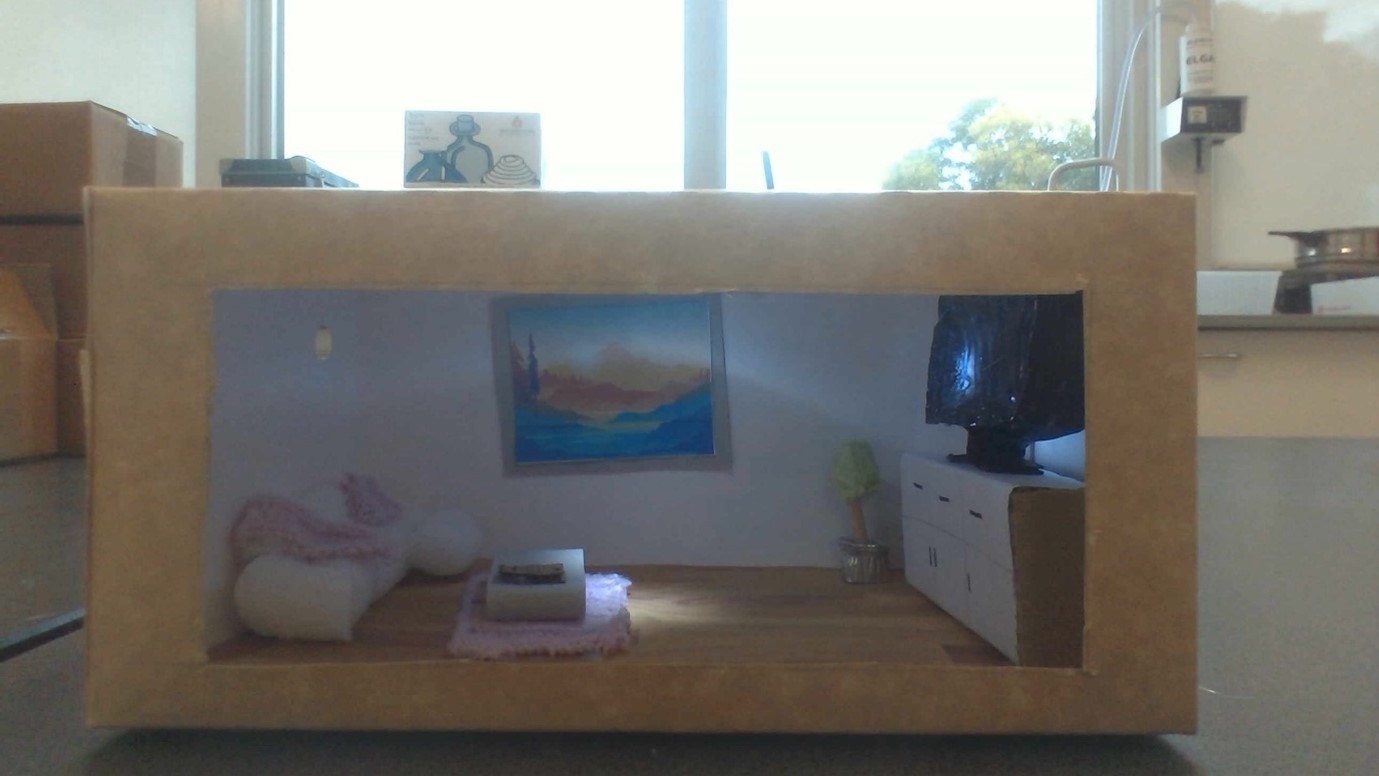 | 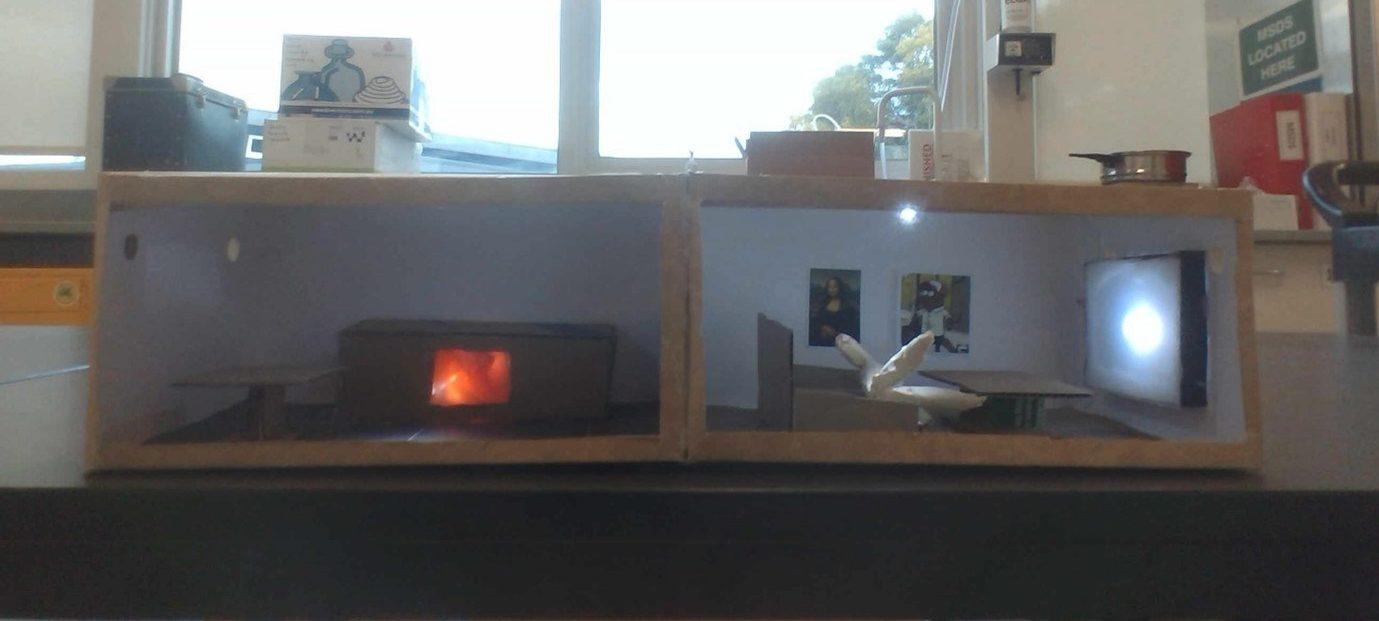 | |
 |
Year 7 HPE
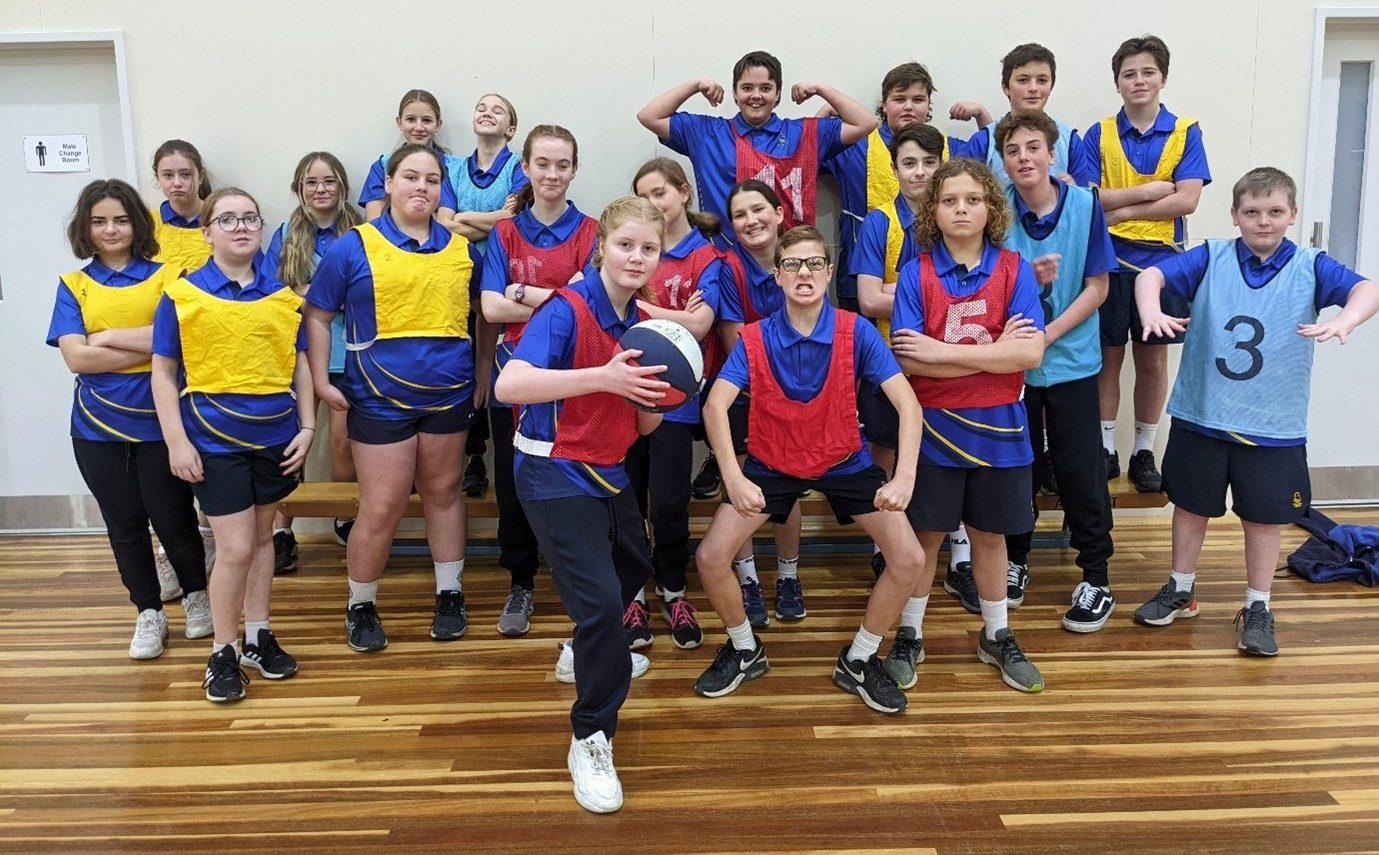
Year 8 Numeracy
In Year 8 numeracy, we have been looking at ratios. Our task was to draw a 1cm grid on a wrapper, then we had to decide on our scale factor. On an A4 piece of paper we drew a grid to match the scale factor. We then drew the image of our wrapper onto the A4 piece of paper. This is what mine looked like...
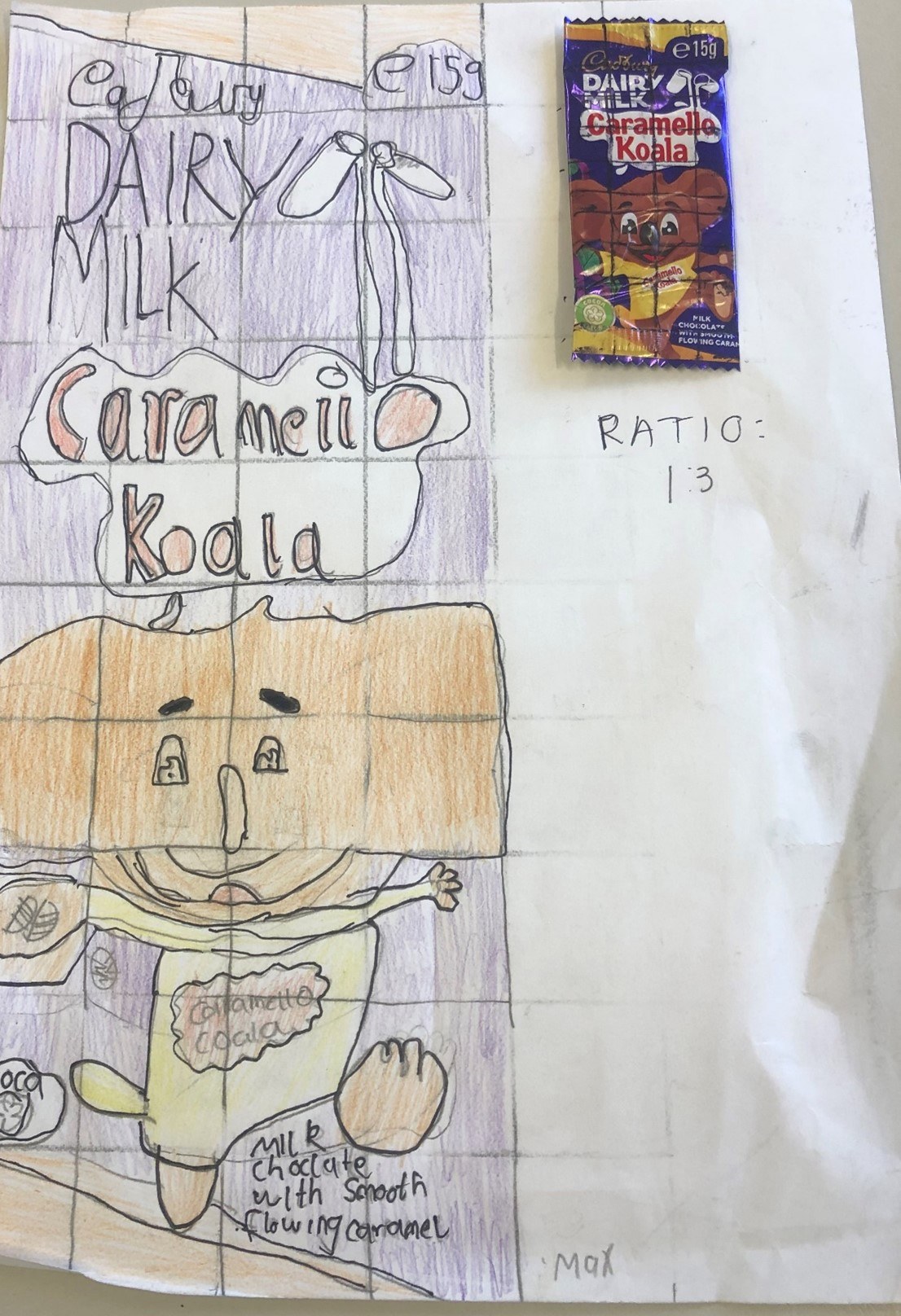
In Mrs Moloney's Maths class we studied ratios. Our class scaled up a section of an image of Mario to the scale of 1:5 and then put all the pieces back together.
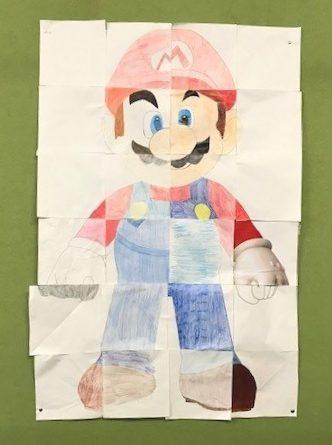
Year 9 Food Tech
I really enjoyed making this butter cream cake, being a big cake (three cakes together) it was hard to make especially trying to get the icing with a smooth finish. I hope it tastes nice.
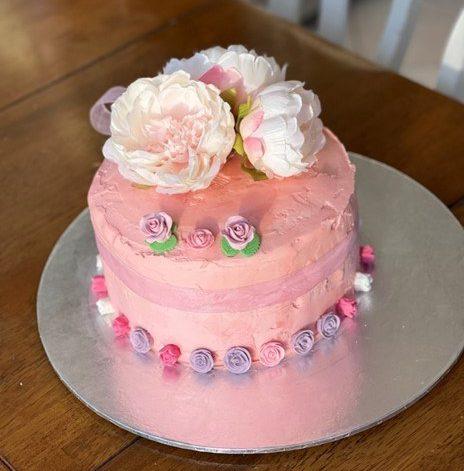
Year 8 Wood Tech and Year 9 VAD
Mr Luke Tyrell has shared some pictures of the laminated boards made by our Year 8 students, along with some paintings from our Year 9s.
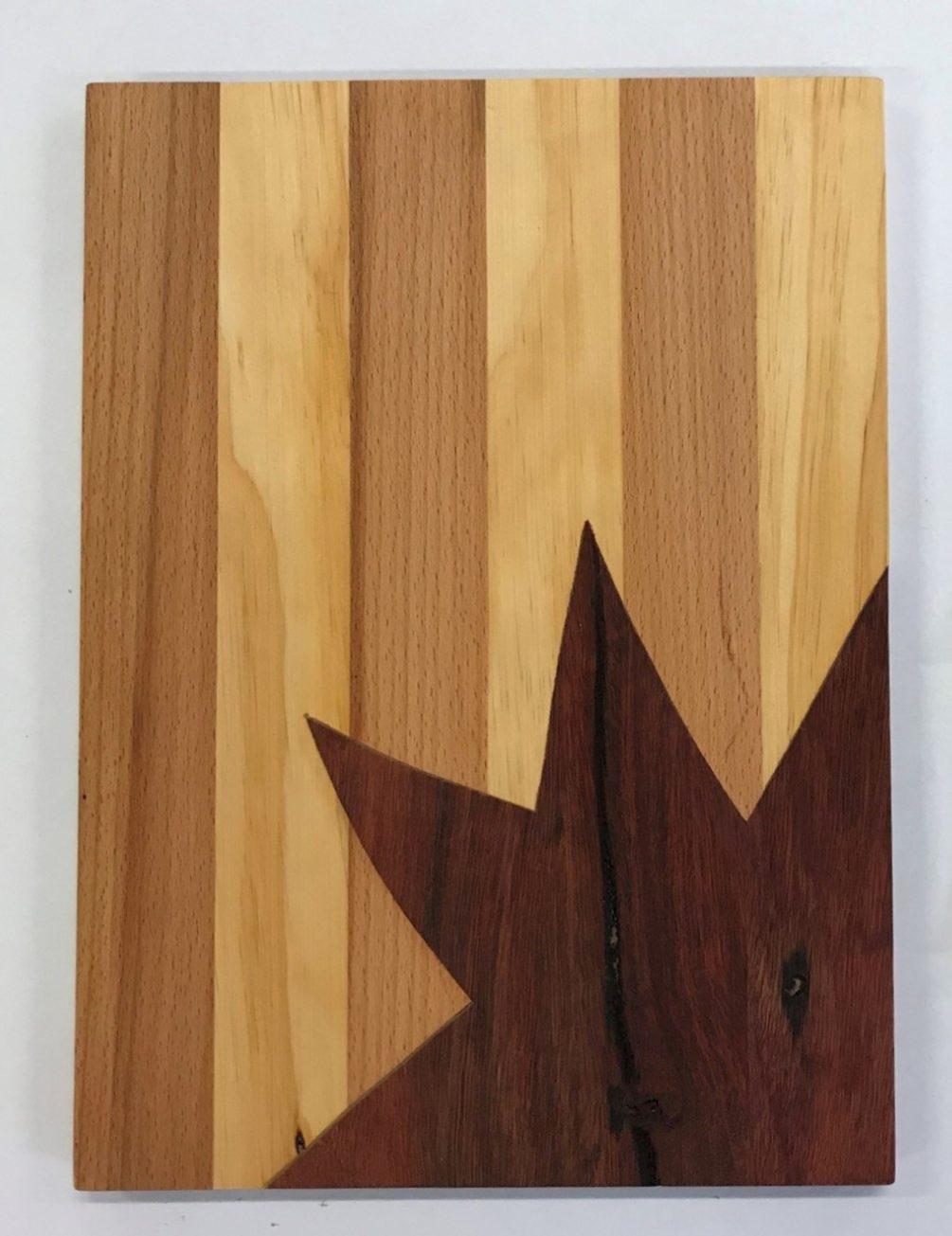
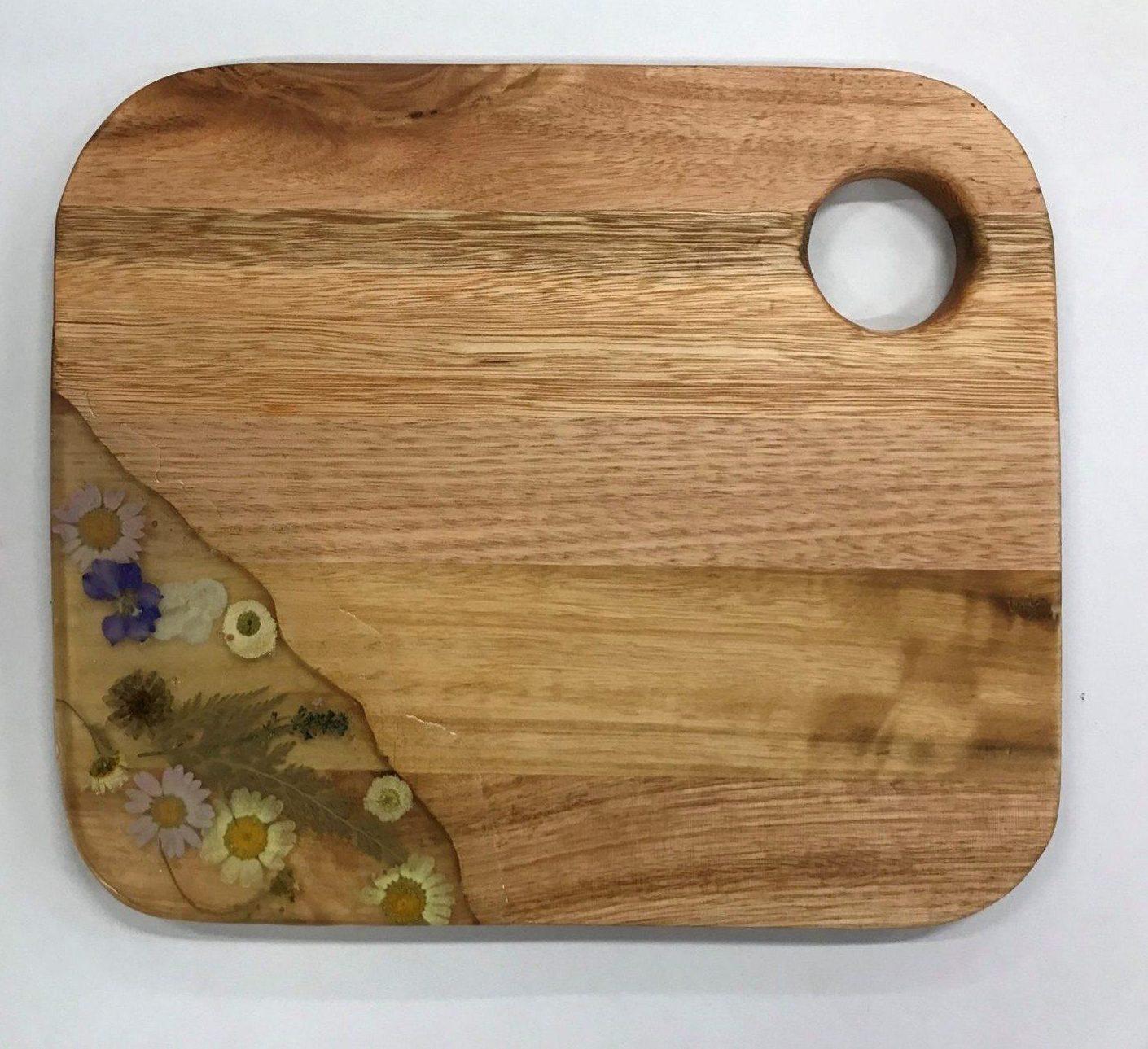
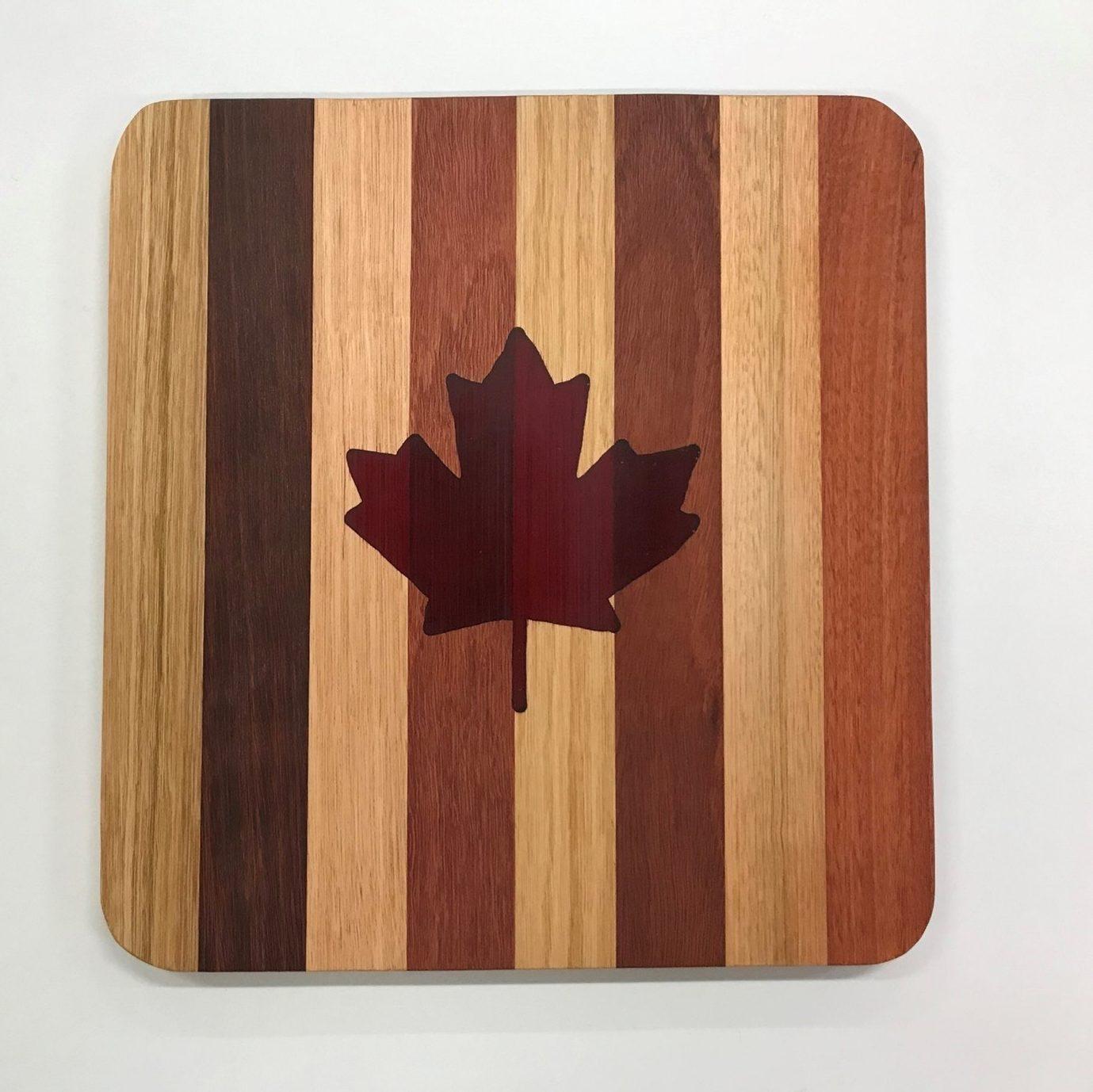
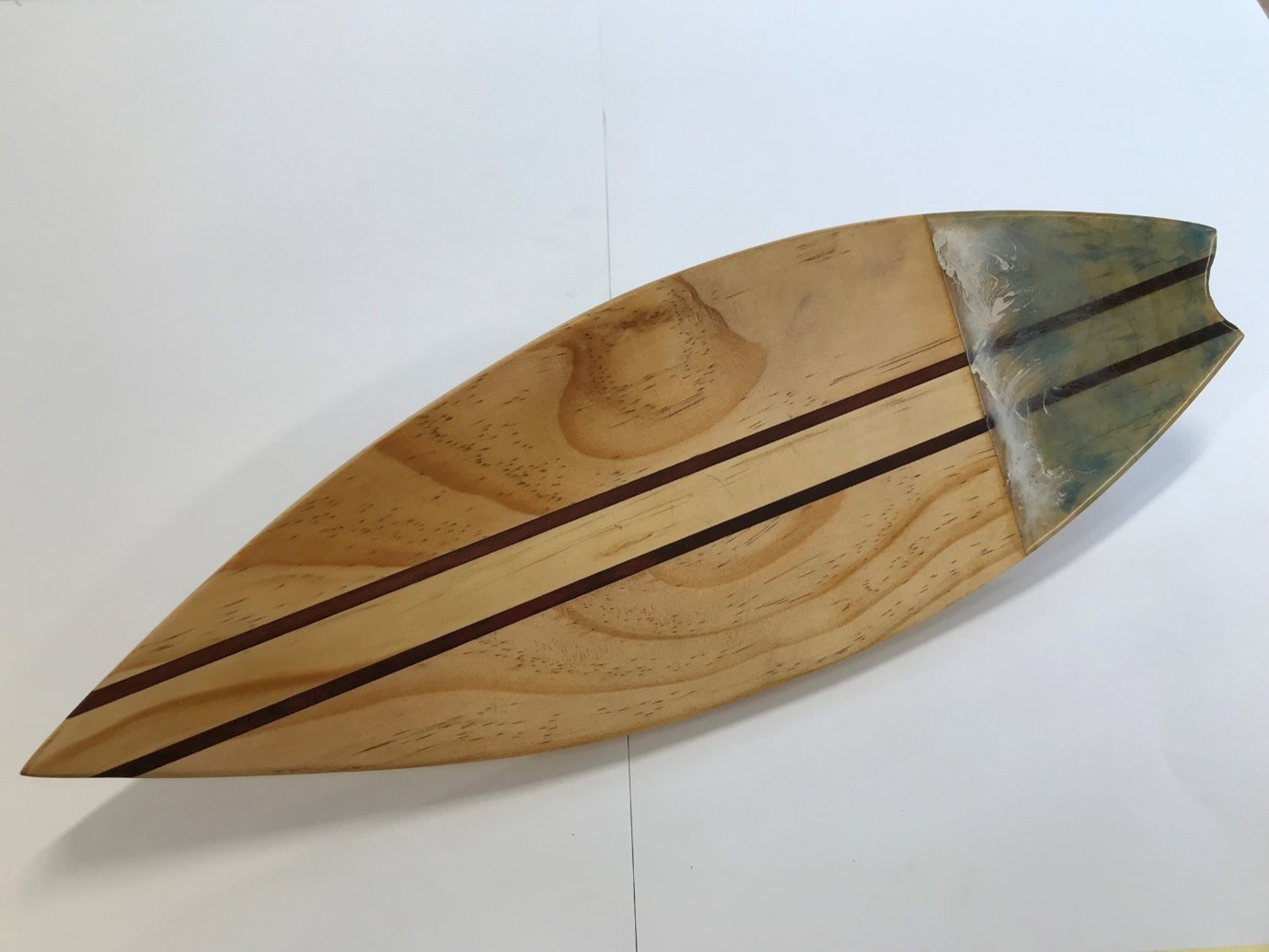
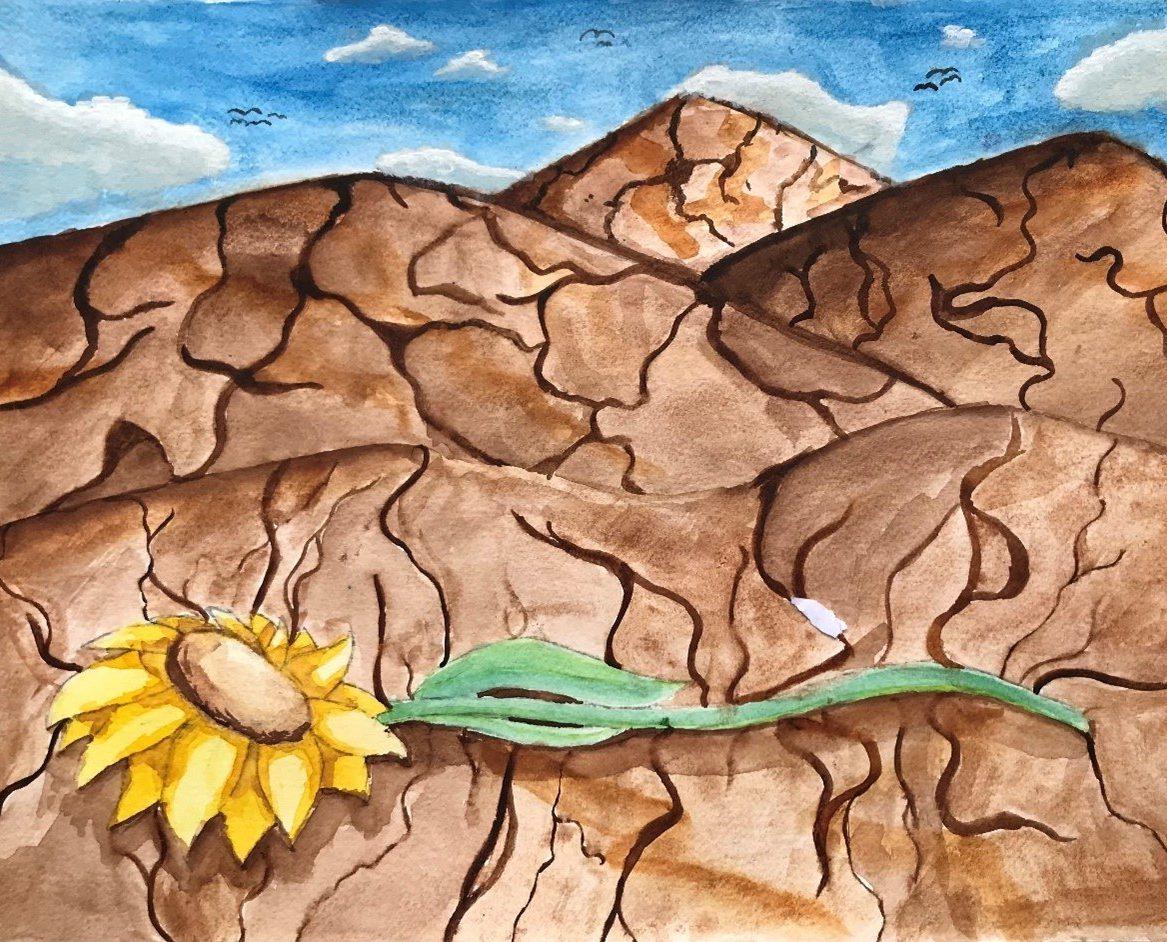
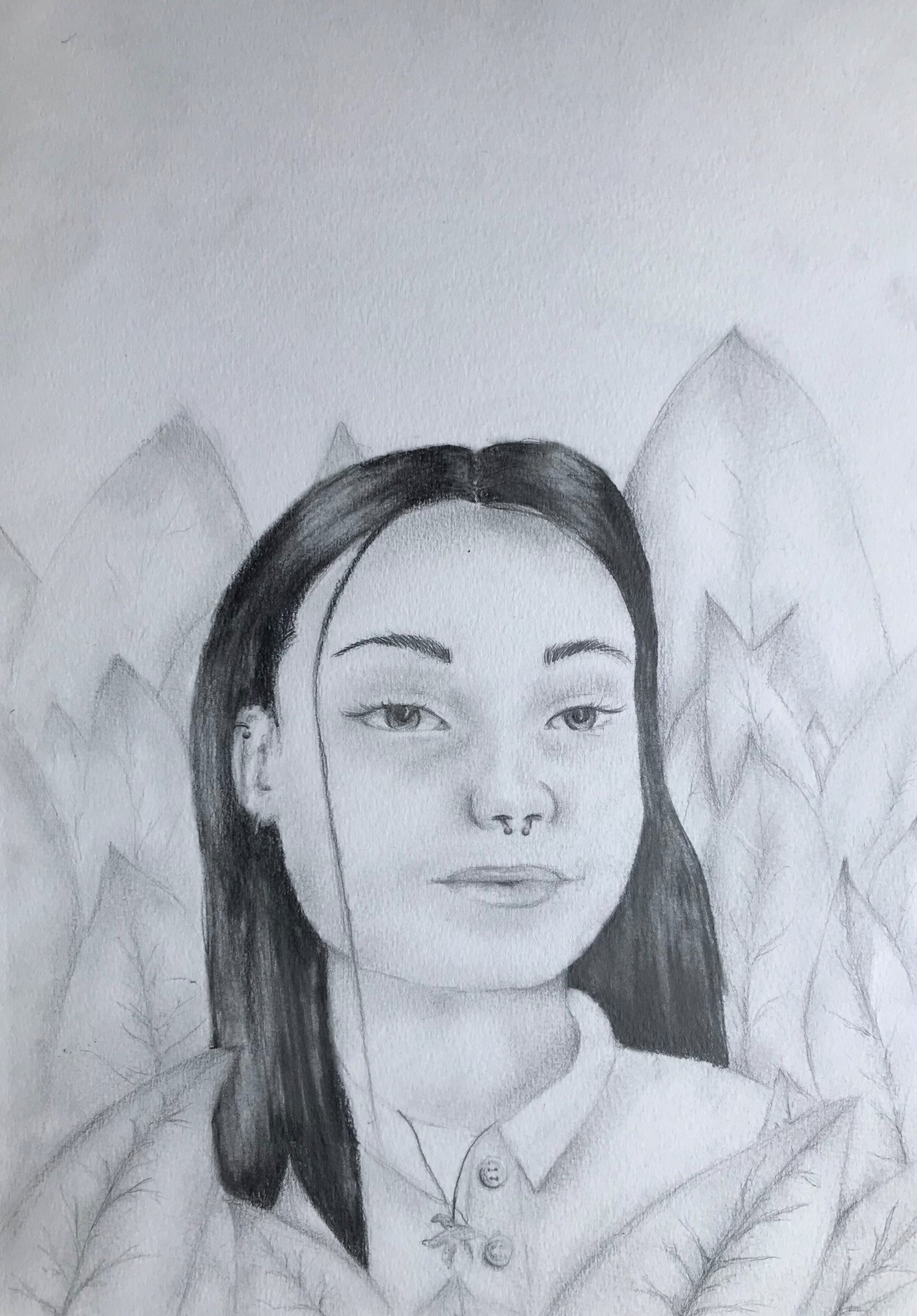
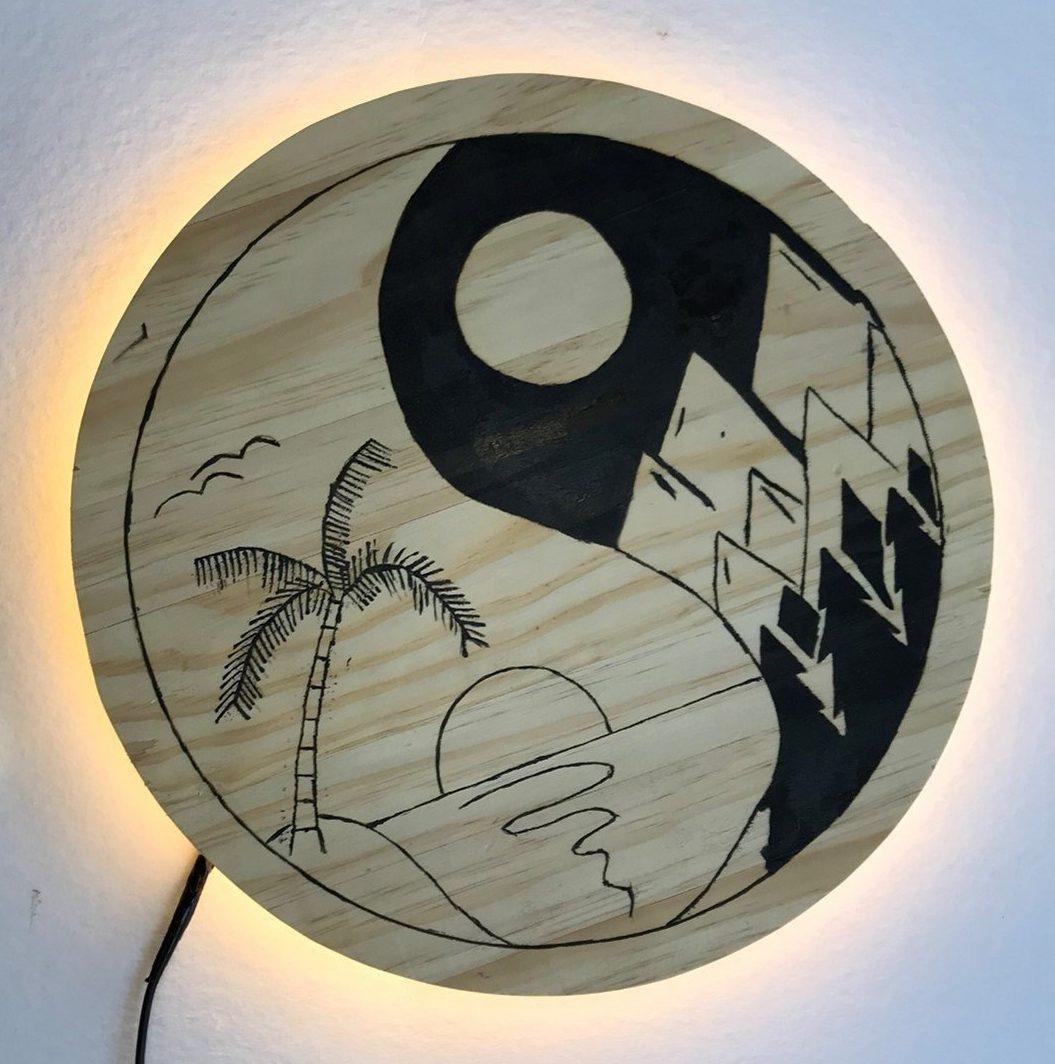

We congratulate all of our students on a great finish to the first semester of 2022, and those who were acknowledged this week for their academic and sporting achievements at our Awards Assembly on Tuesday 21 June.
I would like to take this opportunity, to thank all of our incredible teachers and support staff, for all that they have done to support our students on their learning journeys, throughout the first half of this year.
I also wish to acknowledge Ms Cassie McClean who is departing the Tyabb Campus at the end of the term. Cassie has been a much-valued member of our Tyabb staff and will be missed by not only those in Cardijn house, but our entire Tyabb community.
And finally, I wish to farewell Mr Rob Knight, who, after spending the first half of 2022 on long service leave, has decided to retire. A founding staff member of the Tyabb campus, Rob spent his first 13 years at Padua teaching at the Mornington Campus, before moving to Tyabb in 2014. He was responsible for establishing the very successful Hands-on Learning program and is highly regarded by staff, and students alike as a positive, compassionate and caring Head of Campus, with a wicked sense of humour. He fostered incredible connections with families during his time at Tyabb and his wise counsel was sought by many. Rob will be sorely missed by all, and we wish him all the best in his next exciting life chapter.
We hope all families have a restful break and we look forward to working with you all in term 3.
Take care, and God bless.
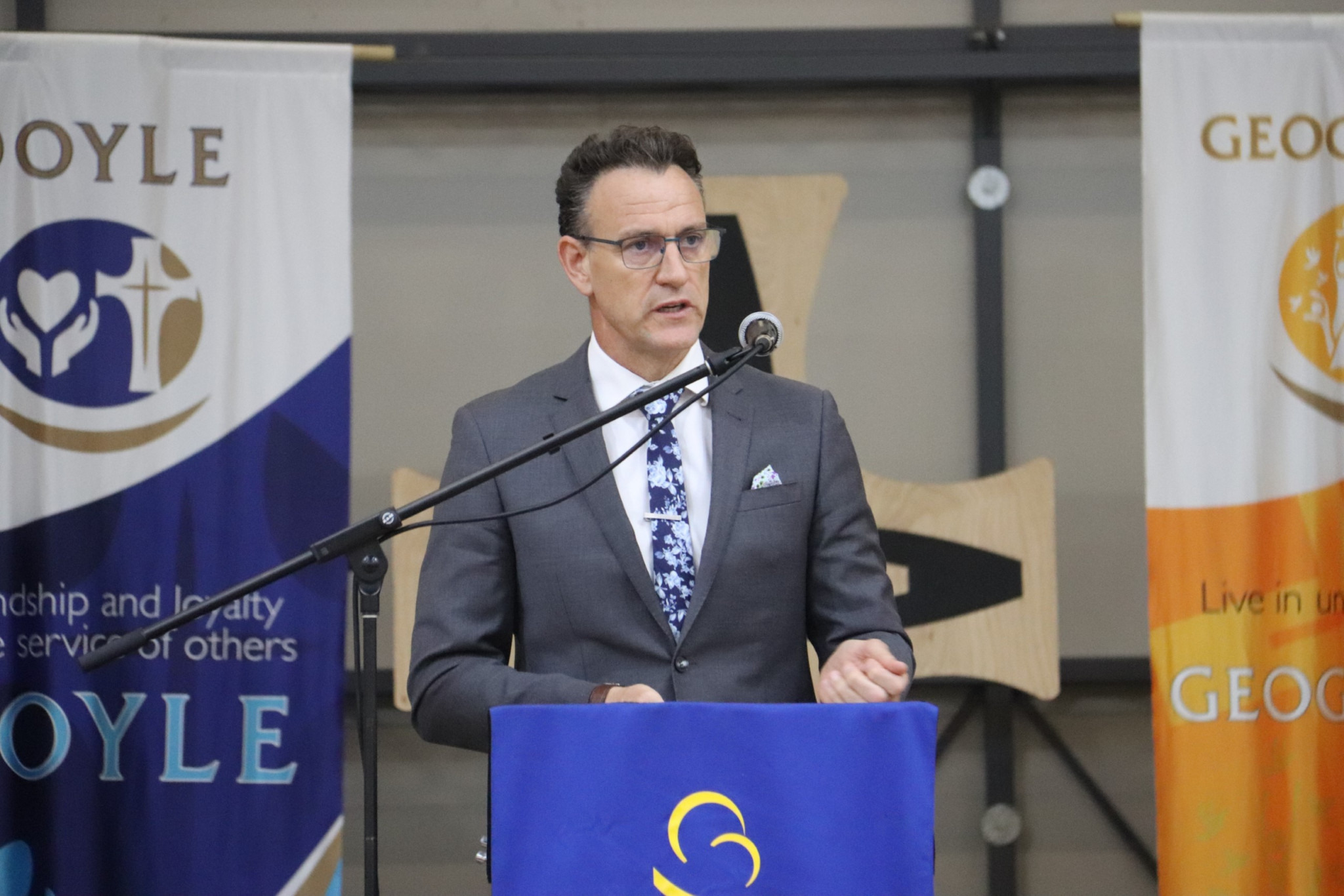
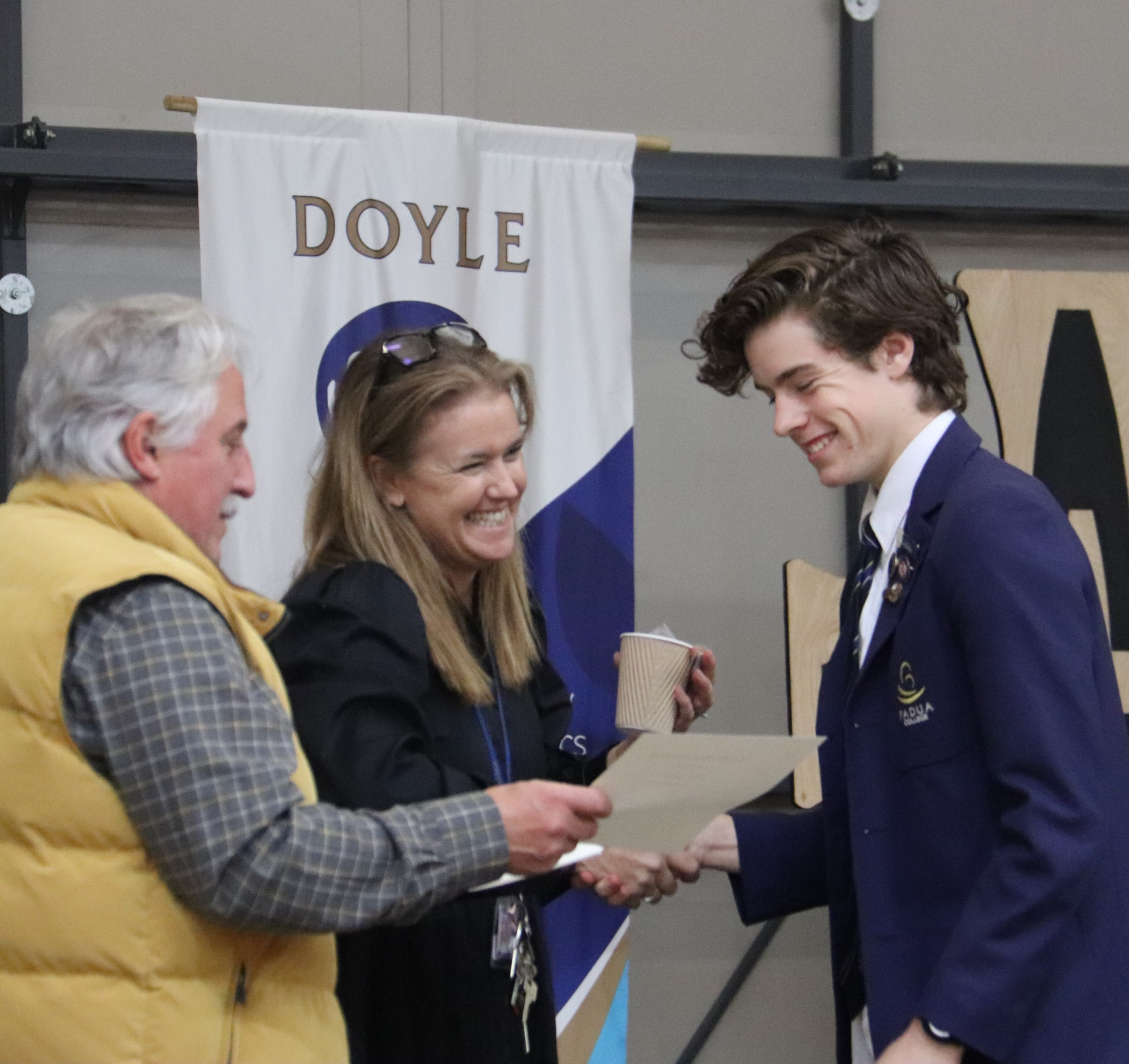
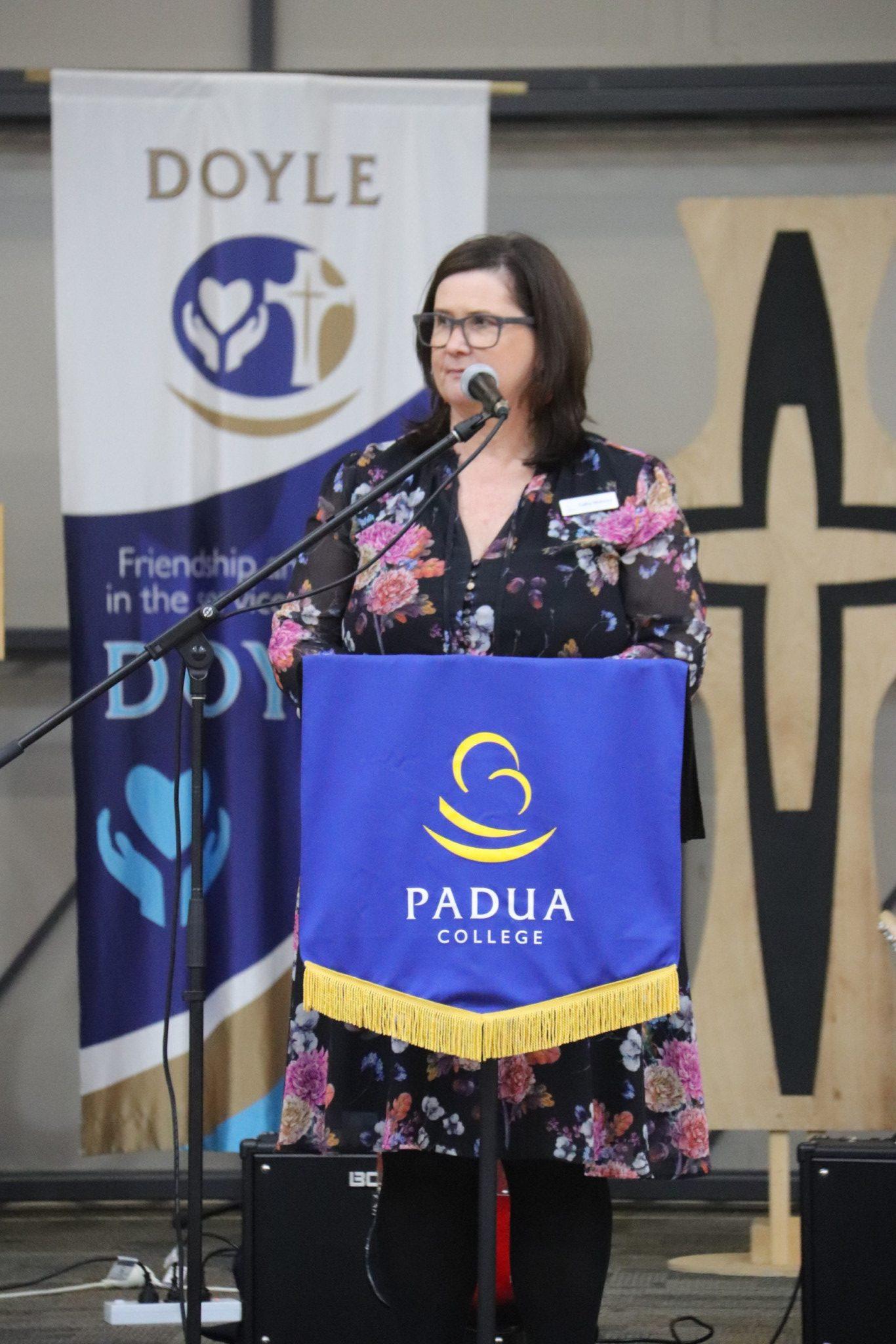
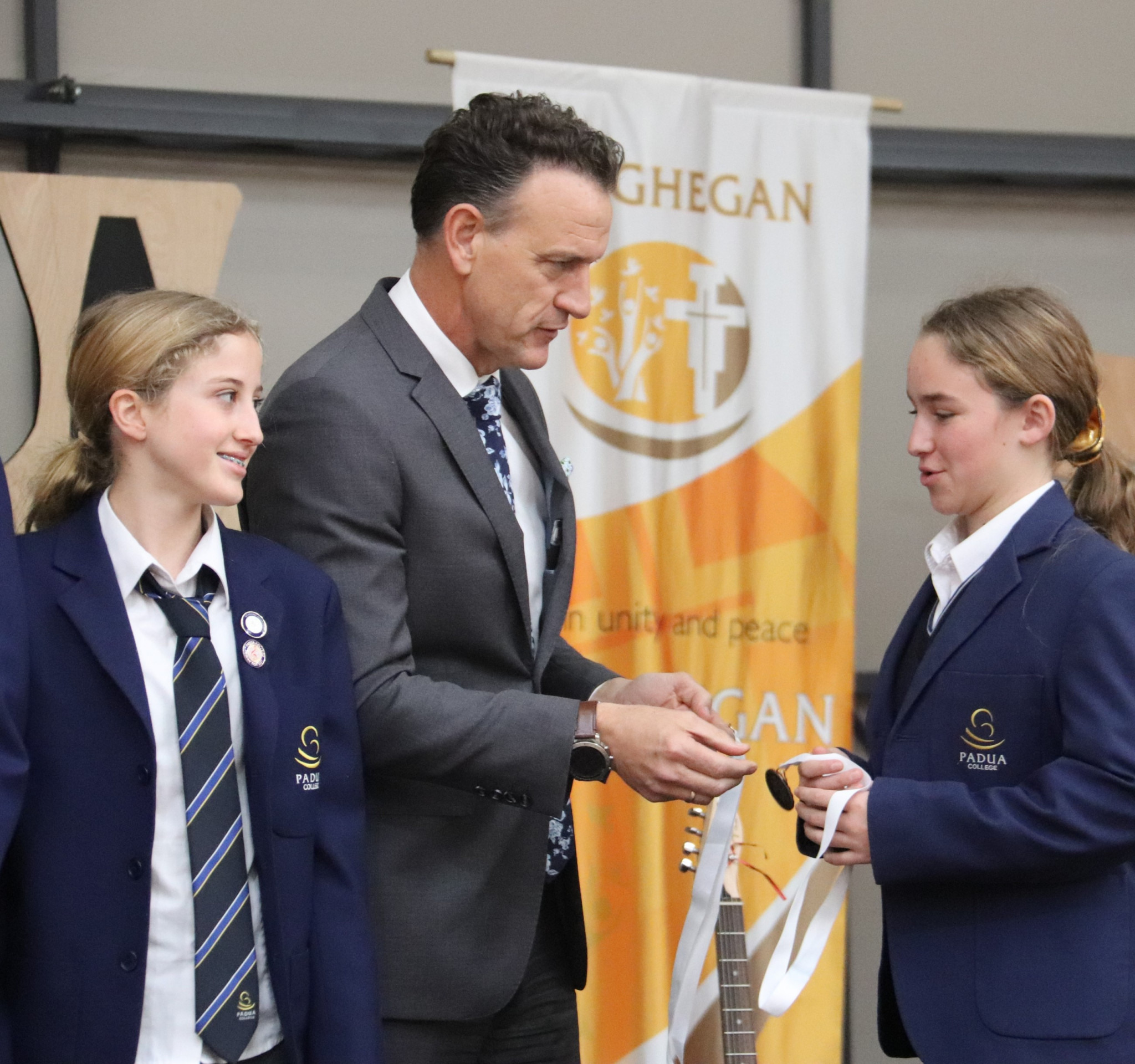
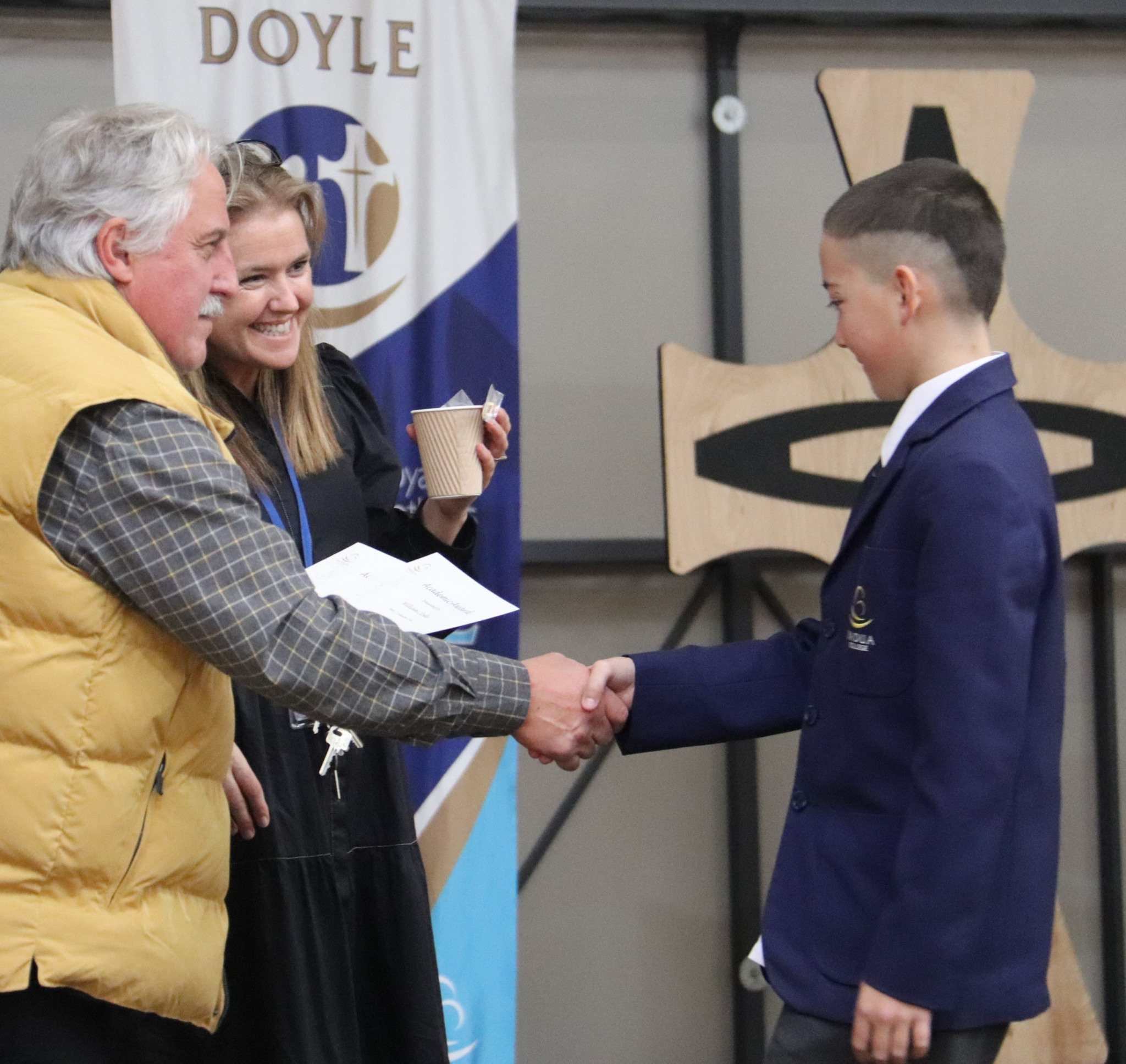

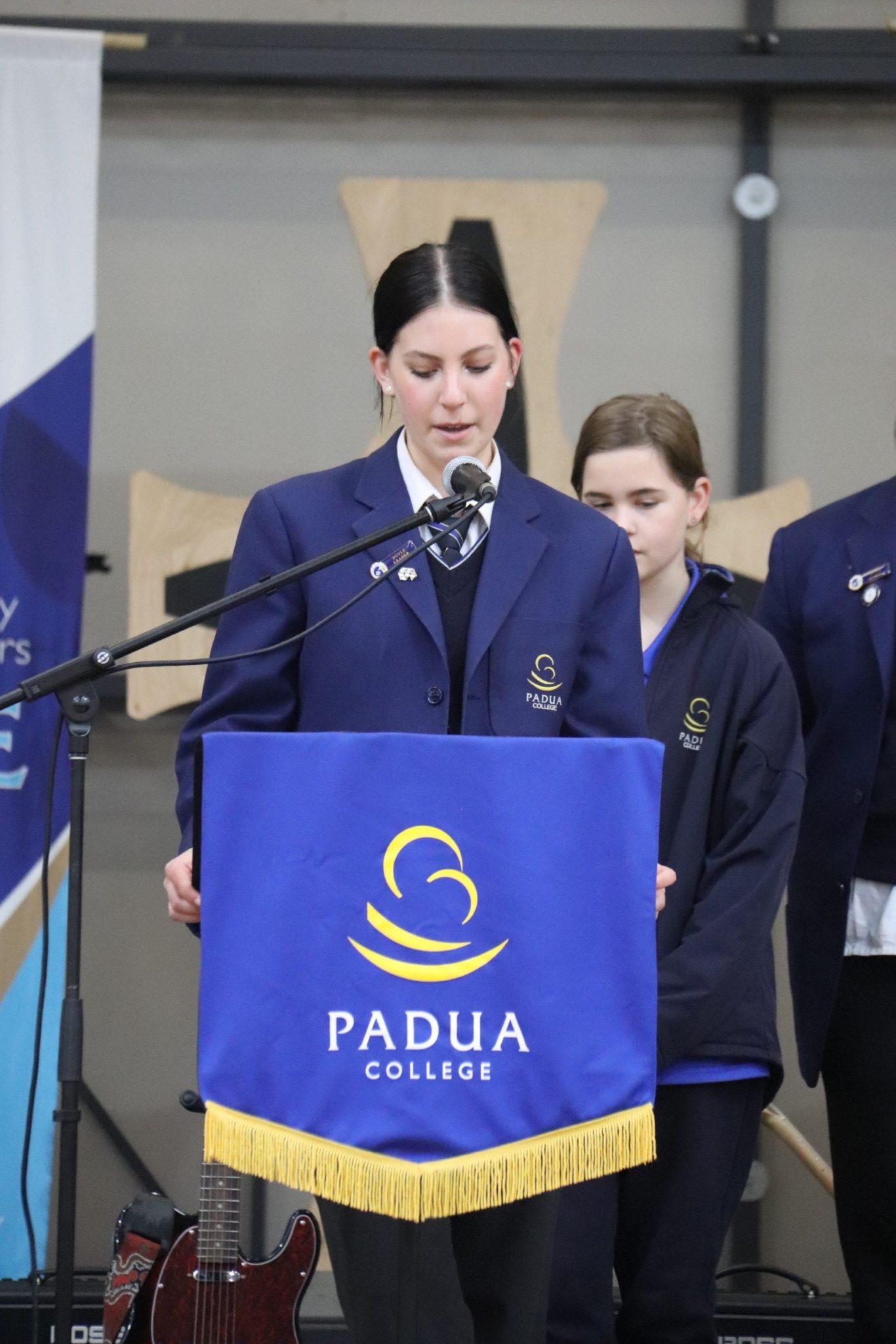
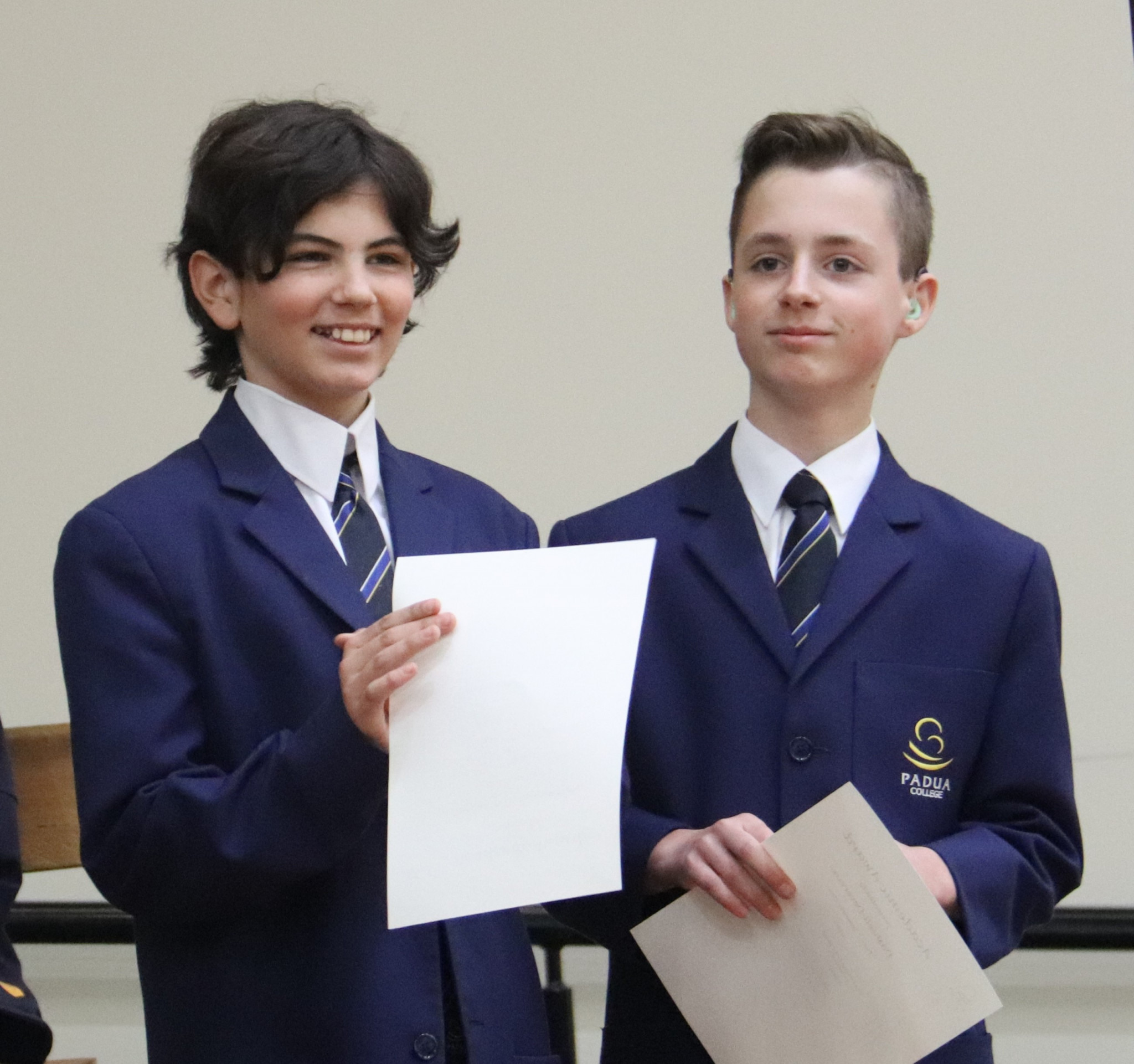
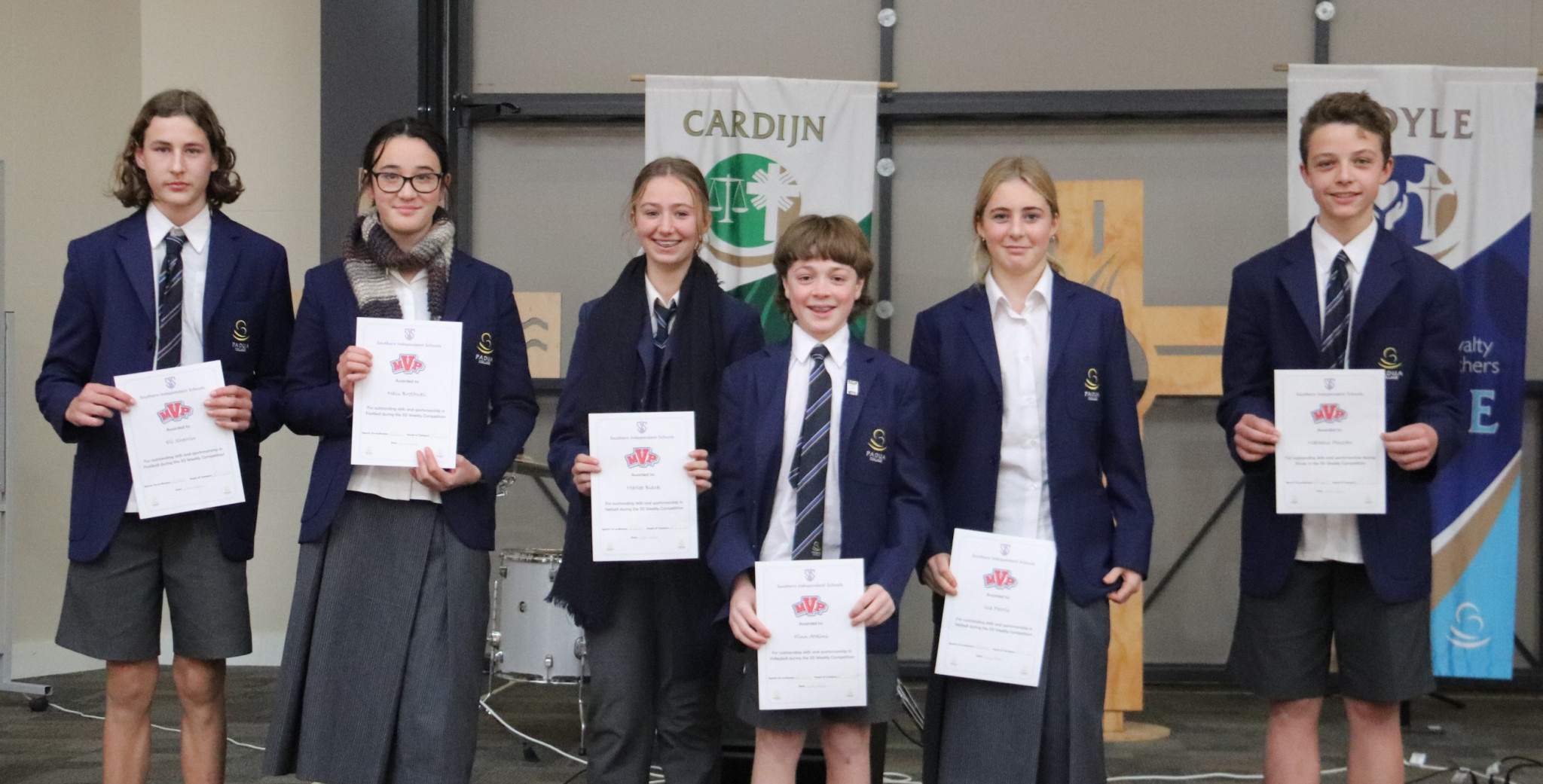

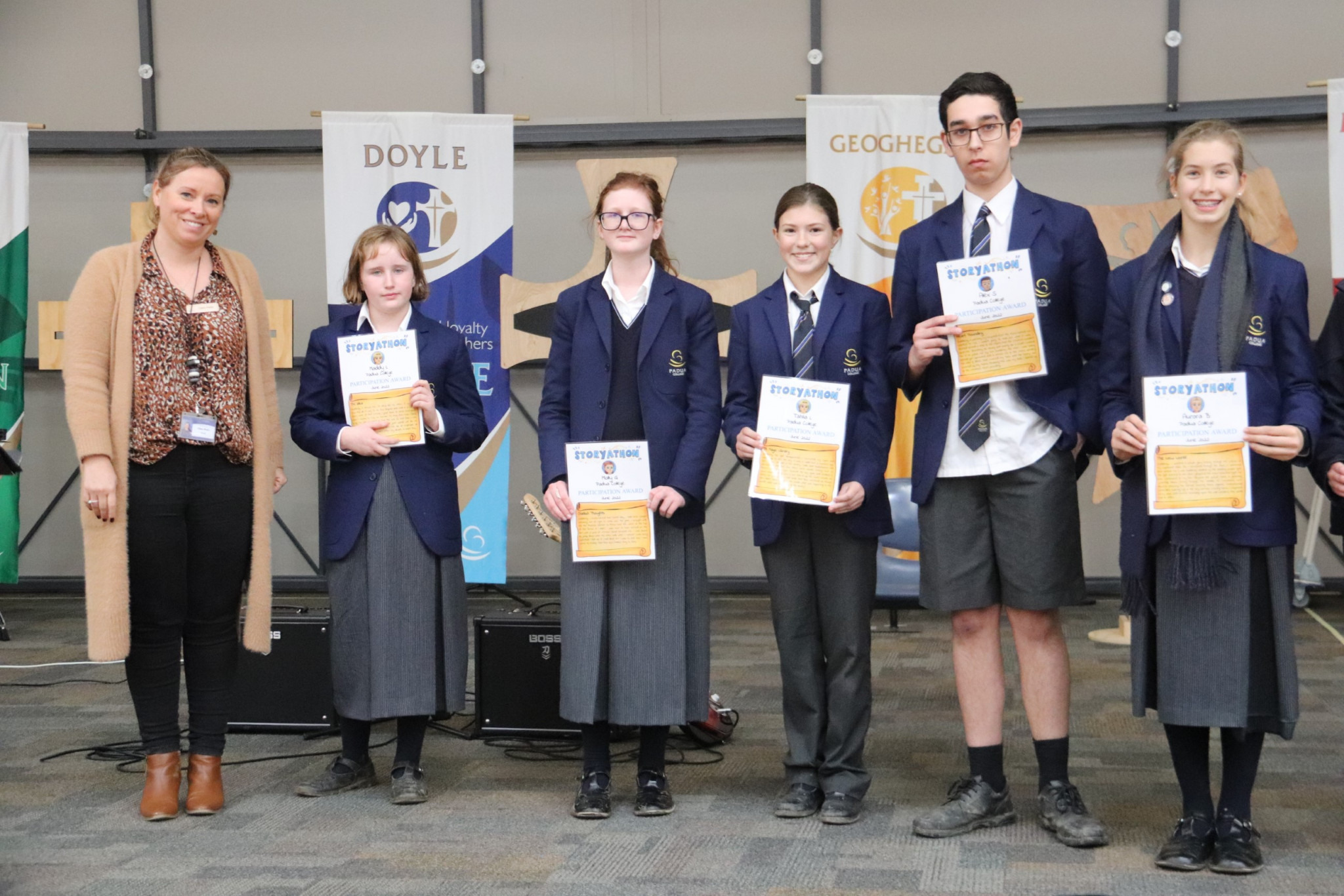
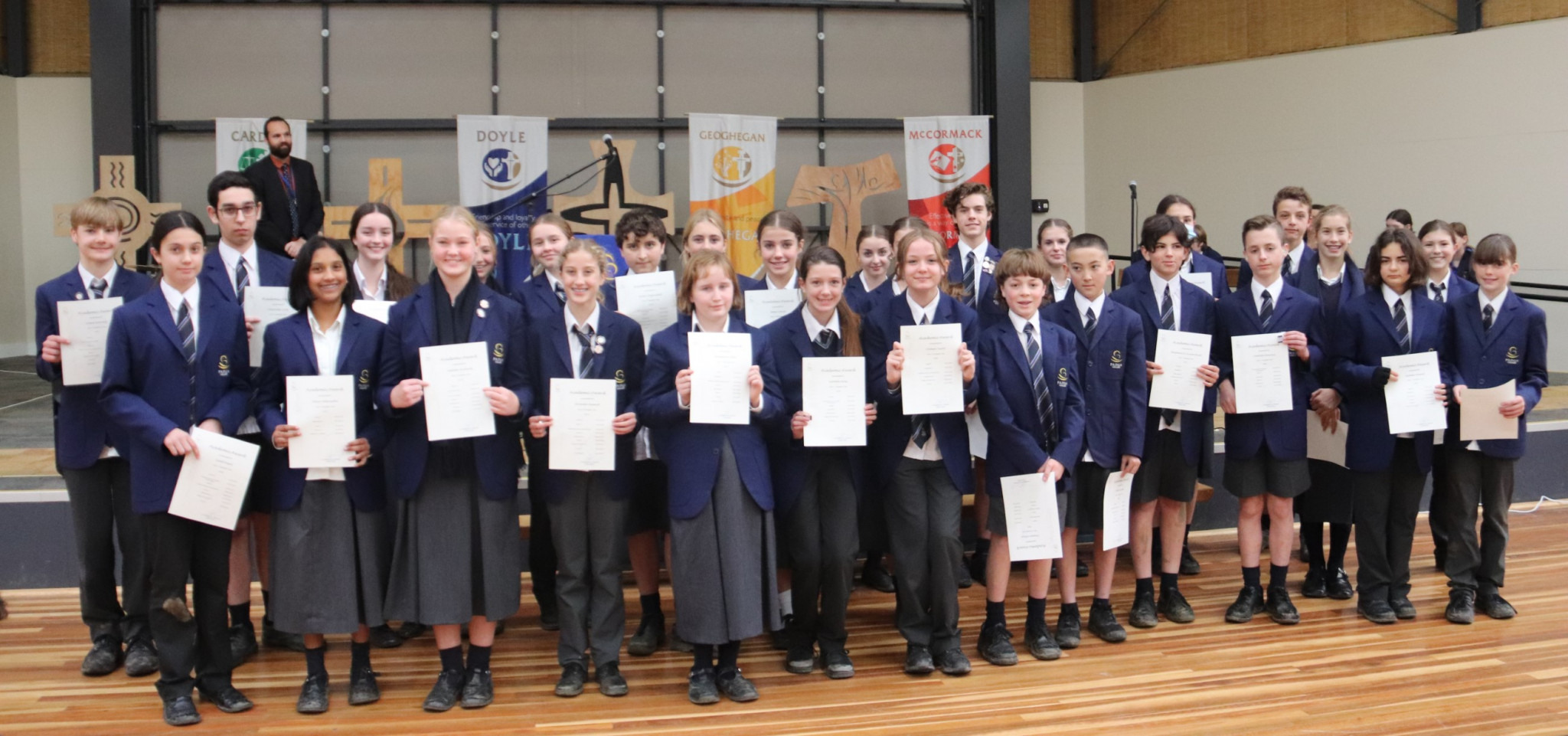
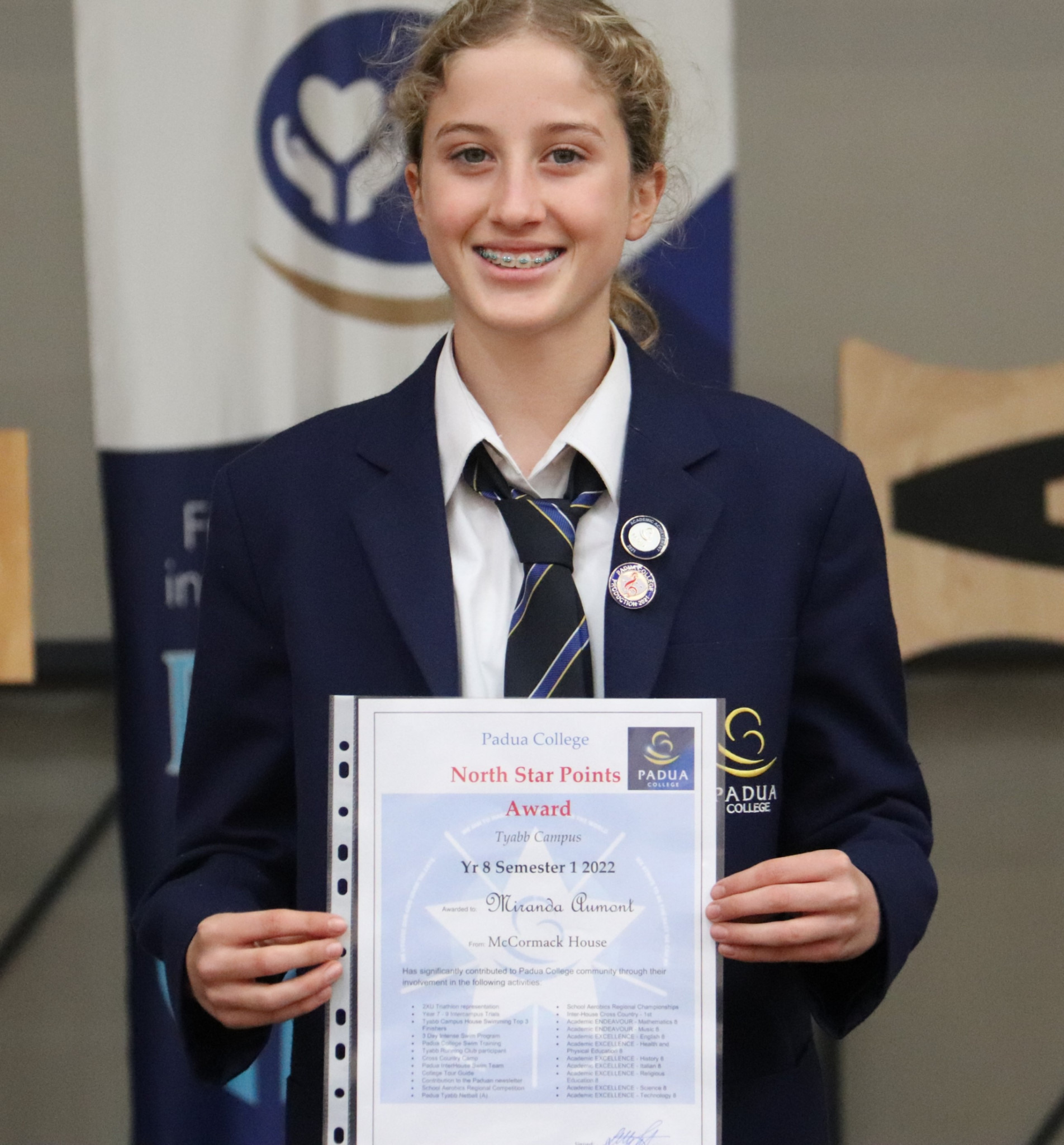

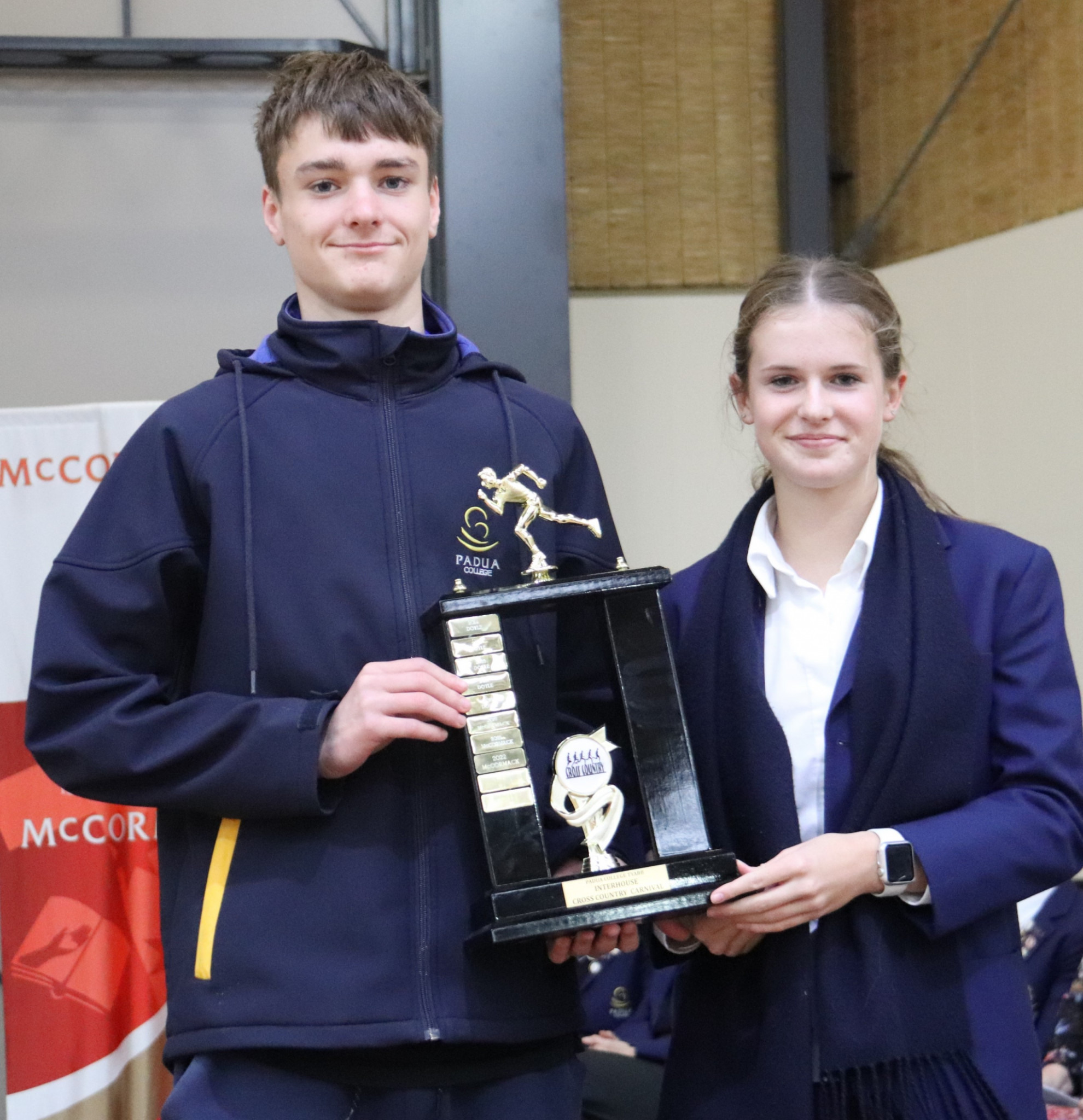
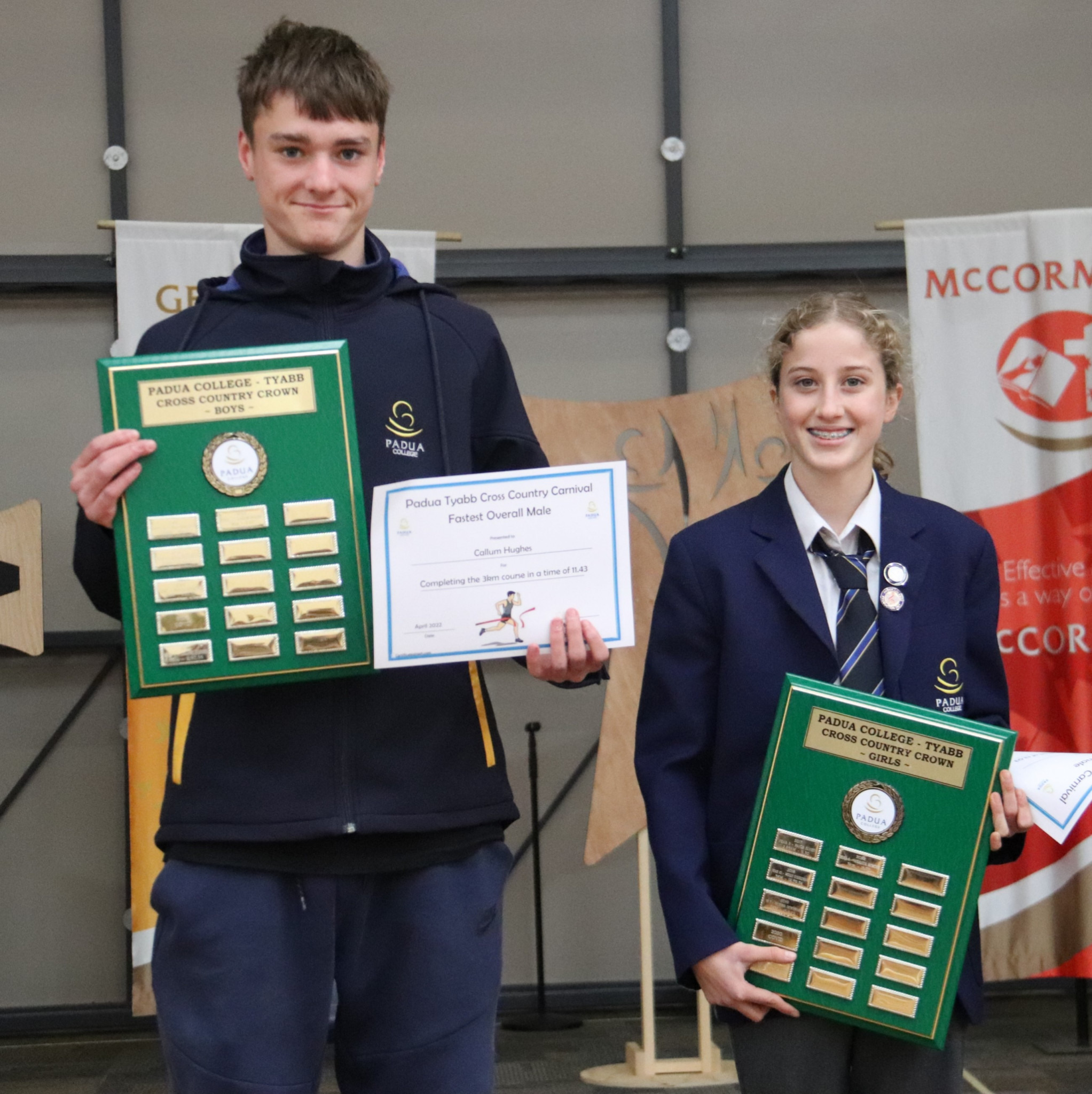

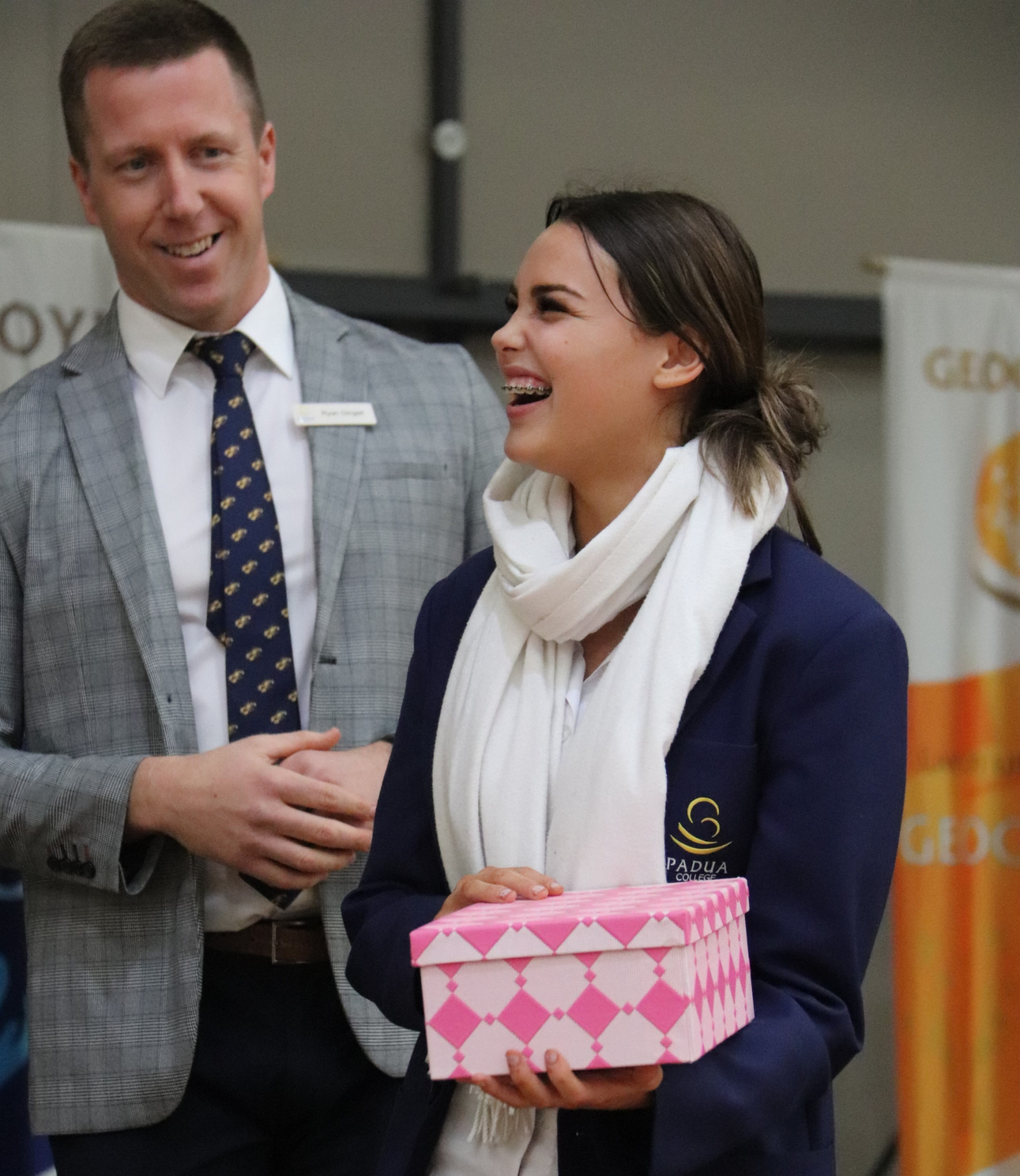
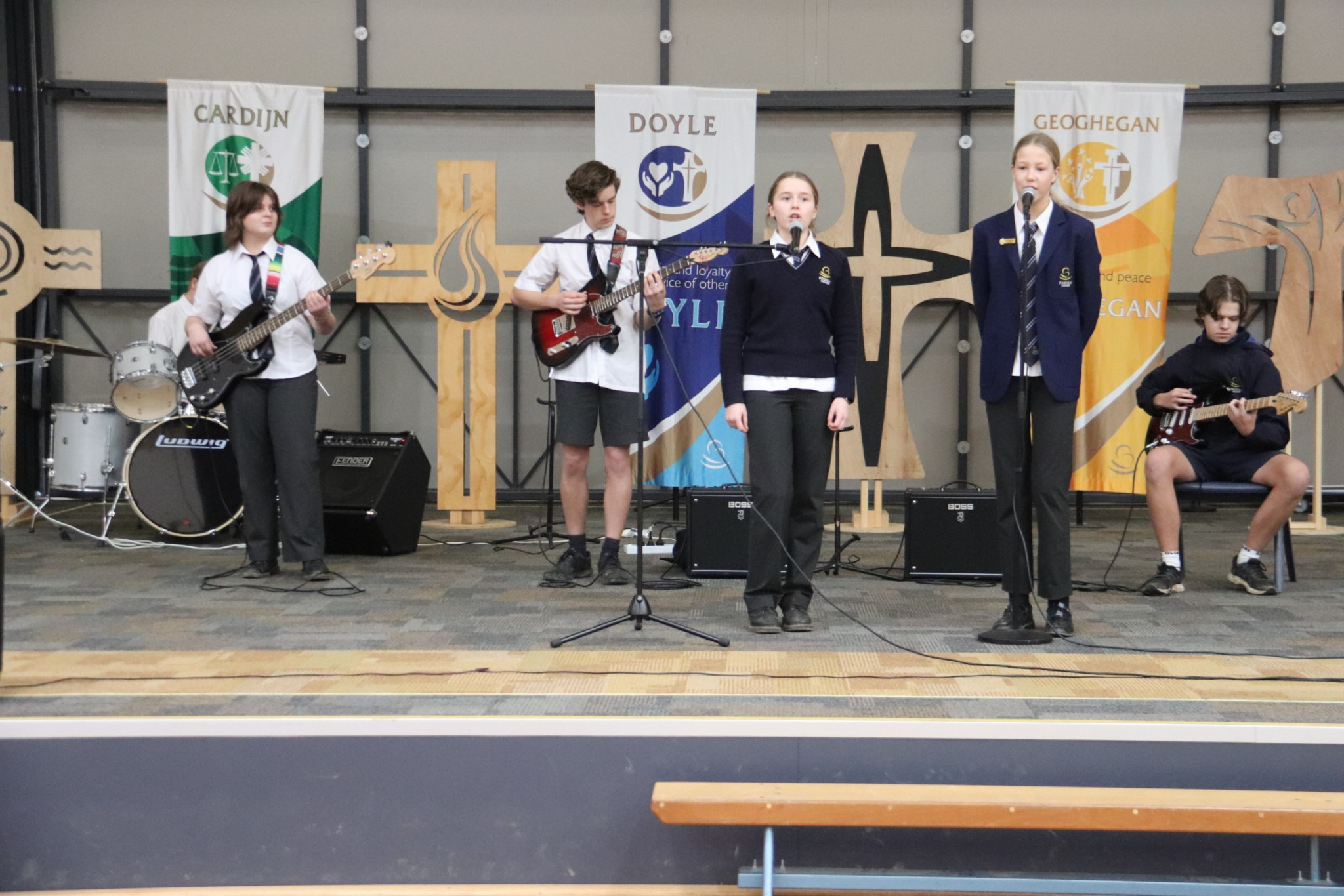
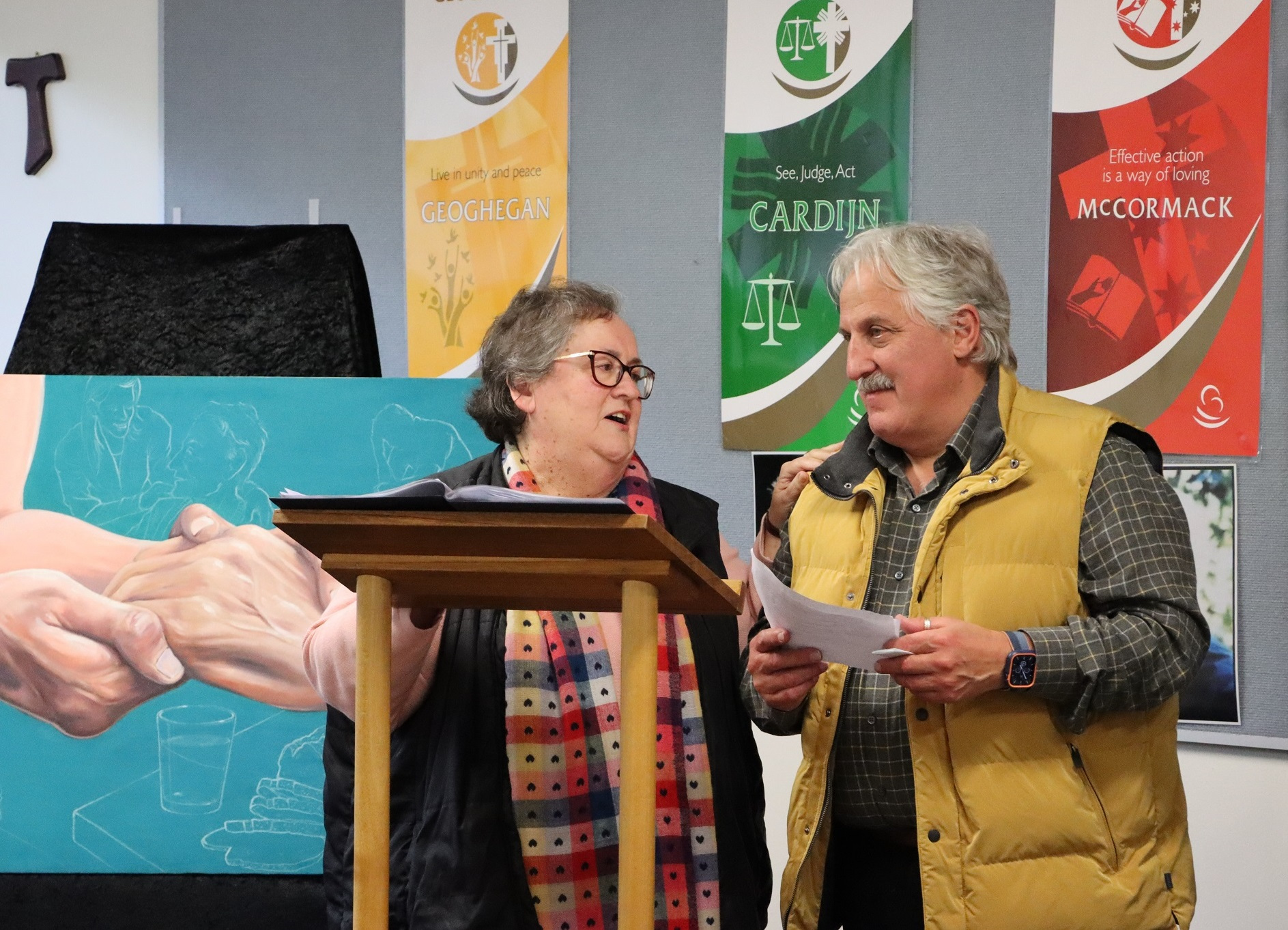
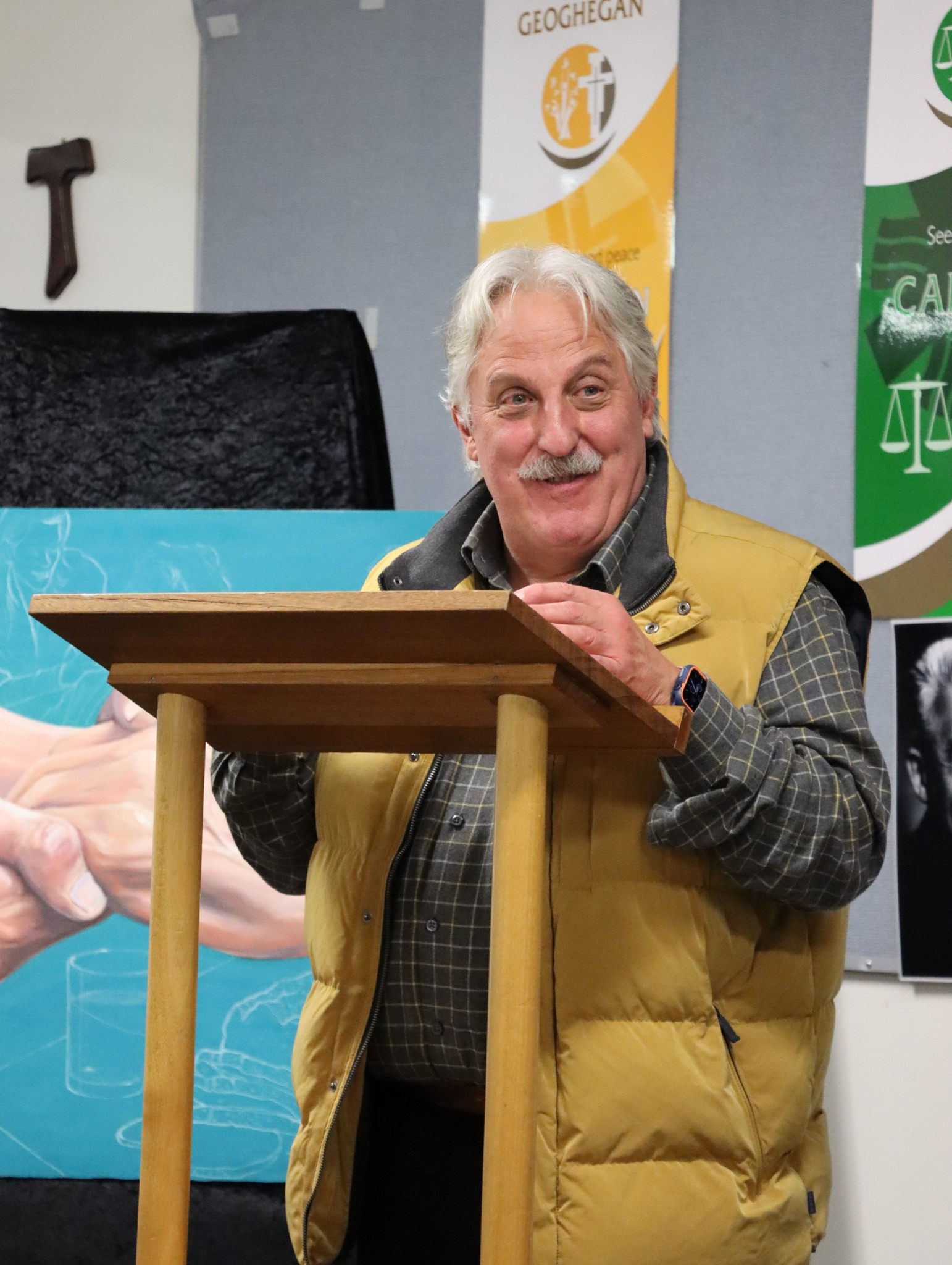
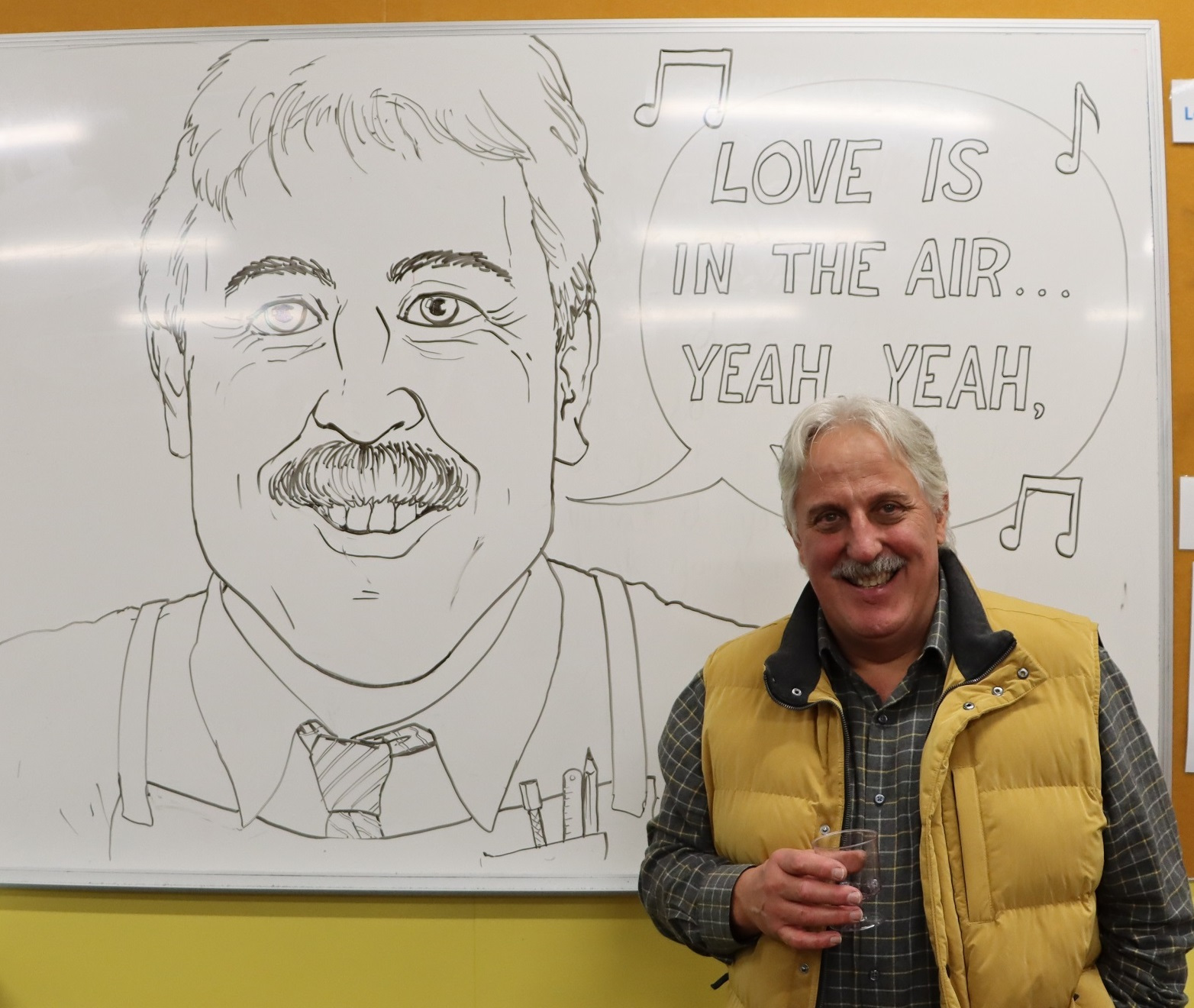
Nationally Consistent Collection of Data (NCCD) On School Students with Disability
Schools are required to complete the Nationally Consistent Collection of Data on School Students with Disability (NCCD) every year. It counts the number of students who receive additional adjustments or “help” at school because of a disability. The NCCD helps governments plan for the needs of students with disability.
Schools work together with families to understand the needs of each child. It is helpful if families give their child’s teacher a copy of any letters or reports they have. The letters or reports will help the school understand the child and the help that they might need. Letters from doctors, psychologists, speech pathologists, doctor, and occupational therapists etc. can be very helpful for schools. These reports along with information that the teacher has (i.e. school based tests, your
child’s work and learning plans) helps the school to understand and meet your child’s needs.
You can read more about the NCCD on School Students with a Disability in the link below:


